#[thread] the ancient and noble art
Explore tagged Tumblr posts
Text
A DC X DP IDEA #45
Mine, Mine, MINE!
Imagine this….
I know Damian is raised in an environment where he is treated as a prince, the only grandson, the heir. Sure those privileges may come in the price of ripping his innocence and childhood away from a very young age. In the end he got everything he ever wanted nor needed. A single word from him and all gather around to get what he needed.
But there will be a day where there is something you cannot get no matter your demands or commands.
….
By the time Damian could form full sentences, he had learned the art of taking. To demand was his birthright; to receive was merely the universe setting itself right. If another child had a toy, Damian wanted it. If a servant carried a blade of exceptional craftsmanship, it belonged in his collection. Even as a young boy, his chambers were overflowing with silken robes, masterfully forged weapons, and rare treasures pilfered from across the world.
His first words had been "Mine." He was greedy from the cradle, claiming everything within reach with an iron will and a clenched fist. As an infant, a single furrow of his brow or a half-formed cry summoned an entire team of wet nurses, attendants, and servants who scrambled to appease him, terrified of drawing the ire of the Demon’s heir. His crib was adorned with silk imported from lands that no longer existed, and gold-threaded blankets were replaced the moment they became even slightly soiled.
When he took his first steps, the world shifted to accommodate him. Marble floors were polished before his feet touched them, and his path was lined with offerings—daggers forged by masters, scrolls of ancient knowledge, carved figurines from forgotten civilizations. Every item he glanced at was quietly removed from its place and added to his collection, regardless of its original owner. He collected without remorse, hoarded without gratitude. His chambers grew into miniature treasure vaults, filled with relics and riches that served no purpose beyond feeding his insatiable desire to own.
Neither Talia nor Ra’s al Ghul discouraged his possessiveness. To them, it was simply a symptom of his lineage. The blood of conquerors and kings ran in his veins, and if he took, it was only because he was destined to. The League of Assassins reinforced this belief with every passing day. He was not taught humility or restraint—only power, precision, and domination. He was forged to rule, molded to believe that the world was his birthright.
But then there was Danyal.
His twin, born under the same stars, shaped from the same blood, yet utterly alien in his quiet nature. Danyal never demanded, never claimed, never expected. While Damian amassed trinkets and trophies with the entitlement of a young emperor, Danyal existed in the spaces left behind—content with simplicity, with little, with the unremarkable. When Damian snatched one of his brother’s few meager toys and added it to his already overflowing pile, Danyal gave no protest. He simply let it go, his eyes soft, his hands uncurled, his expression free of malice or resentment.
To Damian, this was a maddening contradiction. They were both of noble blood. They were descendants of kings, warriors, legends. Danyal should have yearned for greatness, fought for it. But instead, he bowed his head, stepped aside, and surrendered without a sound. Damian saw weakness. He saw foolishness.
When Danyal died on a mission gone wrong, Damian did not weep. His hands did not tremble, his eyes did not stray from the trail of blood that marked the last place his twin had stood. The League moved on without pause, the death barely a footnote in their endless ledger of sacrifice. There was no funeral pyre, no rites or remembrance. The corpse was retrieved, cataloged, and discarded like a failed weapon. Damian told himself it was fate, a destiny trimming the weak from their bloodline.
Danyal had never fought for more. He had never claimed what was owed to him. In Damian’s mind, that made him unworthy. A noble soul without the teeth to defend its title. A flickering candle smothered by the wind. And so Damian forced himself to move on. He trained harder, sharper, faster. He swallowed whatever little grief he has and reforged it into ambition.
At ten years old, when he was finally sent to Gotham, he carried himself like a young prince returning to his rightful throne. He arrived at his father’s doorstep cloaked in expectation, armored in superiority. His every step was deliberate, as if the very ground of Wayne Manor should bend to his will. He was the blood heir, the legacy reborn. Everything in the manor should have been his.
But instead of reverence, he was met with resistance.
When he challenged Drake—Timothy Drake, the imposter who had dared to stand at his father’s side—Damian expected combat, a duel to settle succession. He anticipated a fight that would end with his place solidified and his father's acknowledgment finally secured. But Drake refused. He did not raise a hand. He yielded with words instead of steel, and Damian, raised in a world where weakness was unforgivable, saw it as cowardice.
Worse still, Bruce his father had intervened. Not as a warrior stepping into the arena, but as a father—shielding the usurper. Protecting someone who had no claim, no birthright, no Ra’s al Ghul in his lineage, no biological connection that is burning in his veins. Damian had lashed out. Fury surged through him like fire through dry kindling. How could his father not see it? He was the true son. The legacy of both Bat and Demon ran through his blood.
But here, in this foreign house built on sentiment and ideals, that blood meant nothing.
His hours of grueling training, his flawless blade work, his mastery of languages, poisons, shadows, everything none of it mattered. In the League, every achievement was tallied like gold, every drop of noble blood a weapon to be honored and sharpened. In Gotham, he was just a child with a name. No better than the orphans his father had chosen. He was expected to earn his place not through heritage, but through heart.
And that was a battlefield Damian had never been taught to fight on.
…..
By fourteen, Damian had changed. The transformation had not come swiftly, nor easily. It had been carved into him over years of clashing ideologies, quiet lessons, and countless moments of silent observation. The boy who once barked orders, who demanded the world bend to his will, had been slowly, methodically unraveled.
Gone was the child who screamed, "Mine!" at every turn. In his place stood a young warrior with weary eyes and calloused hands, one who had tasted loss, rejection, and the sting of unearned entitlement.
He had learned, through long nights spent watching others from the shadows of Wayne Manor’s hallways, that love was not given by birthright but earned through sacrifice. He had watched Dick steady the weight of leadership with a smile, watched Tim endure with patience and quiet brilliance, watched Jason bleed and rage and come back again and again for the family that had once failed him. And he had watched Bruce��not the detective that his grandfather would say nor the beloved that his mother would whisper of bedtime legends, but a flawed, weary man who carried his family not with a sword but with open hands.
The League had taught him to take. His siblings had taught him to stay.
“The blood of the covenant is thicker than the water of the womb.” He had not heard the phrase spoken aloud, but he lived it in the moments that unfolded around him. He saw it in the way Alfred laid out tea for children who weren’t his. In the way Cass would wordlessly spar with him until exhaustion broke his fury. In the way Stephanie left notes on the fridge with dumb jokes just to make them laugh. These people—none of whom shared his blood—had chosen each other again and again.
And yet… in the quiet corners of his mind, sometimes, he still wished Danyal were here.
Danyal, who would have thrived in this strange and stubborn family. Danyal, whose softness would have been a strength here, not a flaw. Danyal, who had always looked at Damian not with envy or resentment, but with quiet love.
Damian had spent so long dismissing that gentleness as weakness, never realizing it had been a gift. Looking back now, he could see the missed moments—the times he could have shared instead of stolen, the times he could have listened instead of taken. His brother had not been lesser. He had simply been different. And Damian, in his arrogance, had mistaken compassion for cowardice.
Now, with Danyal long buried and the world colder for it, Damian carried the weight of that realization like a blade across the ribs—never fatal, but never forgotten.
…...
Then came the mission with the Flash. A time anomaly had rippled through the fabric of reality. Barry had worked tirelessly to fix the damage, racing through different timelines until order was restored. But this time, though fixed, have a new aftermath. A vision stitched together from remnants of a path not taken.
The Justice League, ever analytical, treated it like a curious glitch in the multiversal code—a harmless projection of a possibility that never came to pass. They gathered to observe it as they would a peculiar ripple in a still pond, detached but intrigued. Damian had been pulled along by Jon, who bounced with his usual boundless energy, unaware of what the vision would show. Damian followed, armored in detachment, a practiced indifference in place.
But then he saw it.
The flickering image glowed before him like a memory he had never lived. There, seated around the long dining table in Wayne Manor, was a scene so mundane, so heartbreakingly normal, it rooted him in place. His father sat at the head of the table, a rare softness in his posture as he poured tea. Nightwing laughed mid-conversation, shoulders relaxed, while Tim rolled his eyes in mock exasperation. Jason leaned back with his feet on the table, earning a nudge from Cassandra. And at the center of it all, smiling as if he'd always belonged—was Danyal.
His twin. Whole. Alive.
Danyal passed the bread basket to Tim with a crooked grin, said something that made Alfred chuckle. He nudged Damian's double with his elbow, teasing him, effortlessly folded into the rhythm of a family Damian had once believed unreachable. It was a life that had never happened, a universe where Danyal had lived—not just lived, but thrived.
Damian’s breath caught in his throat. His chest rose and fell once, twice, the motion sharp and sudden. His fingers, usually so still, twitched at his sides, as if the rest of him hadn’t caught up with the emotion rising within. Before he could wrest control back from his heart, his hand extended—reaching, aching, needing.
And the word tore from him before thought could stop it.
"Mine."
It escaped in a whisper but echoed like a roar in his ears. Not the scream of a spoiled prince demanding treasure, but the broken, silent cry of a boy mourning what he had never known he needed. It was not greed that moved him, not anymore. It was grief. Regret. A raw, unfiltered longing for the life that had slipped through his fingers before he had ever realized he wanted it.
Around him, the room shifted. Justice League members who moments ago stood in detached curiosity now exchanged curious glances, as they saw the projection and Robin’s reaction to a projection that is just showing a what-if scenario.
The projection flickered. Danyal’s laughter shimmered and dissolved into static. The dining table faded. The light dimmed.
And Damian remained frozen, hand still half-raised, reaching for a future that was never his to claim.
…..
In the heart of the Infinite Realms, where time unraveled and rewound in endless loops and rivers of light, a lone figure hovered silently above the drifting threads of fate. Clockwork, the Master of Time, ancient and eternal, gazed down upon the scene unfolding within the mortal world. His staff gleamed as it gears ever turning, ticking in rhythm with realities both seen and unseen.
His eyes that is both ageless and all-knowing, rested on the image of a boy no longer a child. Damian Al Ghul Wayne stood still before the dying glow of a vanished vision, his heart laid bare. Once a prince of shadows, molded by assassins and pride, Damian now stood not as a conqueror, but as a brothe still grieving. He no longer sought to possess or dominate, but to reclaim something that had always been just out of reach: family.
The Observers had spoken long ago, their verdicts cold and absolute. Danyal’s future, they had said, was a path carved in steel and soaked in blood. The catalyst of the Infinite Realms, the one who will bring the end. But Clockwork had always known better. Time, after all, was not a straight line, it branched, curved, rebelled. And in one of those near-forgotten offshoots, he had seen a flicker. A possibility so faint it could have been dismissed as error. But Clockwork did not dismiss.
He had seen a future in which the Infinite Realms chaotic would finally know peace. He had seen a king . And that king—against all odds—had come in the form of Danyal Al Ghul Wayne.
A soft, amused breath escaped the Master of Time as his gaze shifted across the layers of existence to a shadow nestled within the Realms themselves. There, hidden among the currents of ectoplasm and fractured echoes of forgotten souls, stood a young ghost. His white hair drifted like mist in the realm’s gentle current, his glowing green eyes solemn yet radiant. Gone were the dark locks, icey blue eyes and quiet smiles of Danyal Al Ghul. In his place stood Daniel Fenton—Danny Phantom—the Halfa. Half-human, half-ghost. A being unlike any other. A bridge between life and death.
Clockwork observed him with fondness, a rare warmth in his otherwise distant demeanor. He remembered the moment clearly, the crack between timelines where fate had faltered just long enough for intervention. The Observers had turned away, believing that Clockwork will carry out their verdict to execute the young boy, but Clockwork had seen the glimmer of what could be. He had rescued the boy from his grave and scattered his memories.
He had delivered the amnesiac child to a quiet home in Amity Park, into the waiting arms of the unsuspecting Fenton couple—eccentric, brilliant, and just compassionate enough to raise him without ever questioning the mystery of his arrival. The boy was given a name, a room, a place to grow. And on that fateful day, when Danny stepped into the portal and his molecules split between two worlds, Clockwork had watched it happen with a quiet, satisfied nod. That had been the moment. The transformation. The birth of a future king.
The Infinite Realms would have their High King.
And now, as the Realms shimmered in resonance with Damian’s grief, and Danny’s own presence and ignorance hummed at the edge of understanding, Clockwork let the corners of his lips curl just slightly.
He had never told the Observers about this faint possible of a timeline. The one he saw only once, a future so far removed it flickered like starlight on the edge of perception. This timeline where, both the Realms have their king but he will have a granchild.
Clockwork kept that knowledge close. Even for a being beyond time, some secrets were too precious to share.
As he look at the grieving Damian telling his family a future could have been and Danny enjoying his somewhat normal routine for a young Halfa like him not knowing the immediate danger that is quickly closing in on him.
Clockwork smiled, All in due time.
…...
PS: If someone out there wants to continue or make a fic about this you are free to do so, don’t forget to tag me though.
PPS: Again it got too long for my liking....
PPS: I got a bit carried away, hehehehehe.....
2K notes
·
View notes
Text
Embroidery Meets Art: Victoria Rose Richards’ Stunning Aerial Landscapes

Art takes on many forms. While some mediums are widely recognized, others remain underappreciated despite their beauty. Embroidery, for example, is an ancient craft that often flies under the radar—yet in the hands of a talented artist, it can be truly breathtaking.
Meet Victoria Rose Richards, a 26-year-old embroidery artist from South West Devon, UK. Though she holds a degree in biology, her true passion lies in needle and thread. Her mesmerizing aerial embroidery landscapes evoke a deep sense of nostalgia, capturing the beauty of the countryside from a bird’s-eye perspective.

“Do you have fond memories of visiting the countryside as a child? A nostalgia for those simpler, rose-tinted memories? These are the feelings I focus on recreating in my aerial embroidery landscapes,” Victoria shares on her website.
Her journey into embroidery began as an escape from boredom. After facing various challenges in life, she realized that creative expression was the key to fulfillment. What started as a simple hobby soon became a lifelong passion—one that has brought her both joy and a thriving career. Now, nestled in the countryside, Victoria finds endless inspiration in the landscapes around her, weaving emotion and memory into every stitch.

Embroidery has been around for thousands of years. According to historical records, the technique dates back as far as 30,000 B.C., with some of the earliest examples originating in Ancient China between the 3rd and 5th centuries B.C. By the early Middle Ages, embroidery had already made its way to Europe, where it became a symbol of wealth and status. Nobles adorned their clothing and homes with elaborate stitched designs, turning embroidery into a coveted art form.
The craft saw a major transformation during the Industrial Revolution, particularly with the invention of the first embroidery machine in mid-19th century France. This innovation paved the way for mass production, making embroidery more accessible than ever. Today, with the help of modern materials and technology, the art form continues to evolve while preserving its traditional charm.

Despite its long history, embroidery remains a unique and fascinating craft. Artists like Victoria Rose Richards ensure its relevance by pushing creative boundaries and offering fresh perspectives. Her work proves that embroidery is more than just decoration—it’s a medium for storytelling, emotion, and artistic expression.
Through her breathtaking aerial landscapes, Victoria brings embroidery into the modern art world, allowing us to rediscover the beauty of this ancient craft. And thanks to artists like her, we get to experience its magic in ways we never imagined.
900 notes
·
View notes
Text
Ah, so Sin is having the same difficulties. Mauvier had hoped that commiserating with someone in the same predicament might show him a solution. Now he has two of the same problem to address.
Mauvier drops his gaze to the ground. "A young noble of such apparent wealth probably wants for little," he says. "I doubt anything of material value would be worth the hassle, to be truthful. So I have been thinking about the kinds of things that can't be bought with gold. But even then...I remain unsure."
Monetary value aside, they don't even have the luxury of being sentimental. There is simply nothing else to be known about the boy. Except perhaps...
"I did not attend the Battle of the Eagle and Lion," Mauvier says, after some thought, "but afterwards, I heard the students murmuring about Sir Menja, that he used...bread, as a weapon?"
i like to engage in the ancient and noble art of searching for 'cool bows' on Google Images and just, like, really wallow in that shit
What IS the perfect birthday gift, and do YOU have yours ready?
15 notes
·
View notes
Text
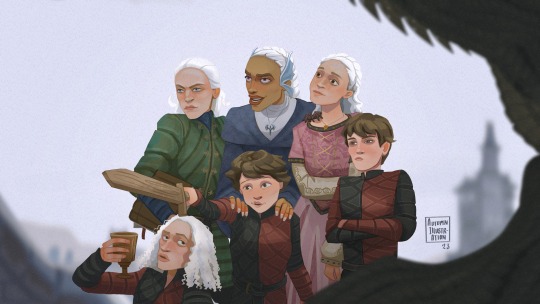
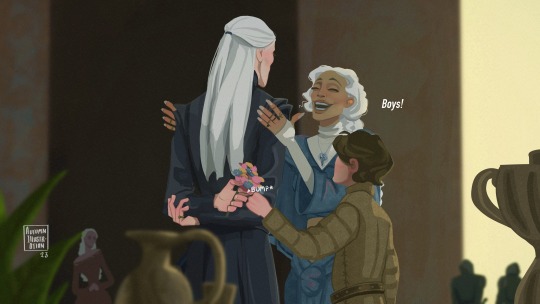
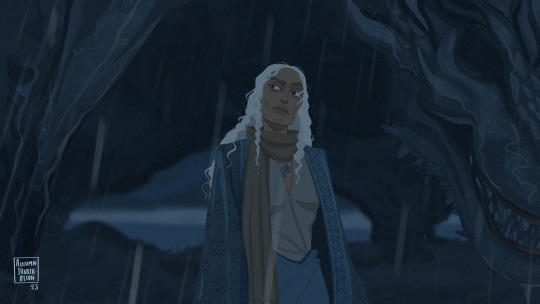
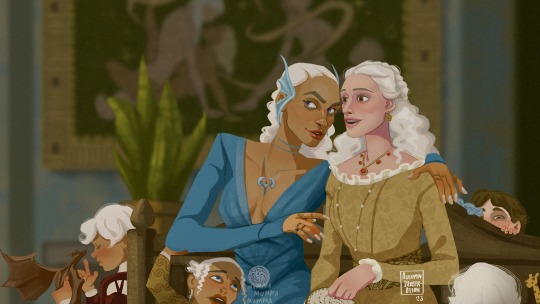
"In Another Life"
In another life, 'The Dance of Dragons' is merely a volume containing all the ancient dances of Old Valyria (that all noble children fear when maesters pull it down from dusty shelves), and 'The Drowned Dragon' is simply some curious lament floating about the docks of Westeros and Essos.
In this life, Laenys tells few what had befallen them in a forgotten timeline, and how every thread came undone for her to step back into the past and stop the dance.
Here's an art dump for my fav dysfunctional family, the Targaryen-Hightower-Velaryon-Strong brood, with the sneaky addition of an oc, Laeni V (Rhaenyra and Laenor's kid).
#just one big happy family your honor#illustration#art#asoiaf#laenys velaryon (oc)#house of the dragon#the drowned dragon#artists on tumblr#aemond targaryen#fanart
396 notes
·
View notes
Text
Lonely Mountain = Armenia
I have a take to make: Armenian culture is very similar to how I would imagine the culture of the Dwarves of Lonely Mountain.
When you think of the halls of Erebor, images of grand stone halls, intricate metalwork, and proud, resilient people come to mind.
Interestingly, this mental imagery resembles Armenia, a rich and ancient civilization in the Southern (that is important - Armenians are not Caucausians per se, like Georgians and/or Dagestanians) Caucasus region. From the stone-borne proud spirit of the Armenian people to their architecture and traditional clothing, there are fascinating parallels between the two cultures, real and fictional.
1. Architecture: Stone, Fortresses, and Underground Structures
The Dwarves of Erebor are renowned for their skill in mining and stonework, creating vast underground cities with intricate carvings and fortifications. Similarly, Armenian architecture is marked by the use of stone, with many historical fortresses, churches, and monasteries built using basalt, tuff, and other locally sourced materials. These buildings, often nestled in mountainous regions, reflect a deep connection to the earth, much like the Dwarven kingdom carved within the Lonely Mountain.
Examples:
Geghard Monastery: Partially carved out of mountain rock, this UNESCO World Heritage site demonstrates the skill and artistry of Armenian stonework. Its cavernous halls and intricate carvings are reminiscent of the Dwarven halls deep within Erebor.
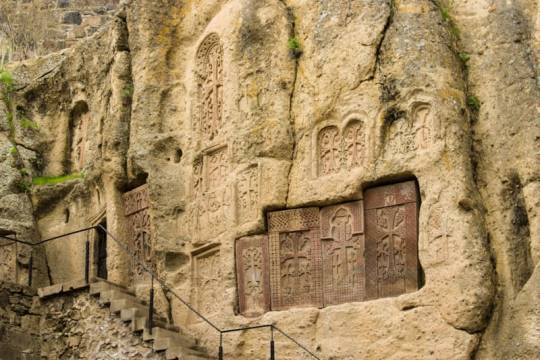
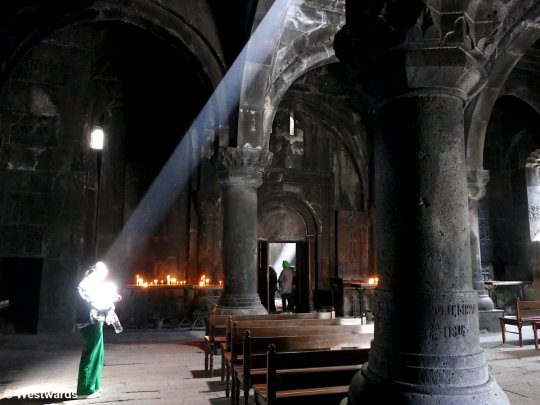
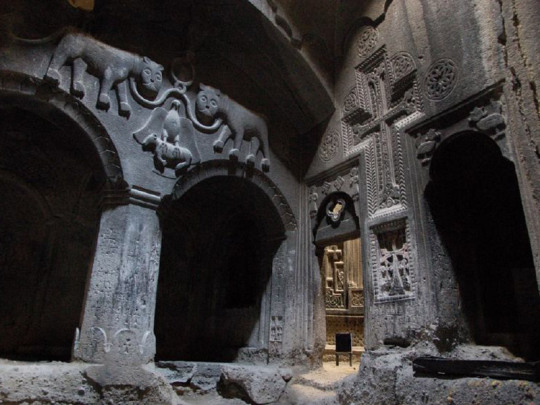
Tatev Monastery: Perched on the edge of a cliff, this fortress-like monastery reflects the grandeur and defensive nature of Dwarven architecture.
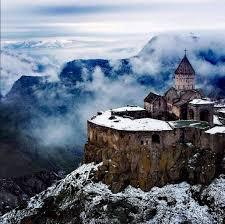
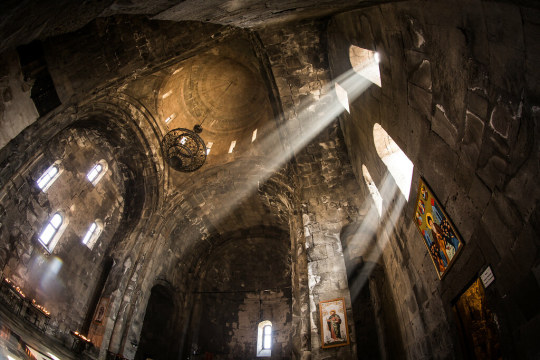
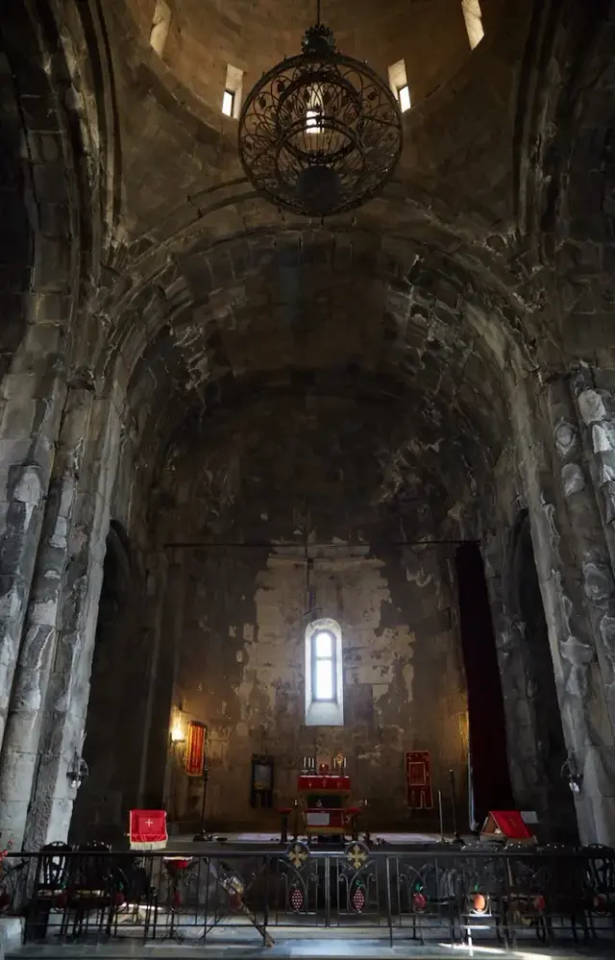
2. Traditional Clothing: Regal, Rich, and Embroidered
Tolkien’s Dwarves are often depicted in elaborate, layered garments with intricate patterns, a testament to their pride in craftsmanship. Armenian traditional clothing, especially royal and ceremonial attire, shares this emphasis on richness and detail. Armenian robes from different historical periods were made from fine fabrics, often embroidered with gold and adorned with jewels, echoing the regal appearance of Dwarven kings and warriors.
Examples:
Royal Armenian Attire: The robes of Armenian kings and nobles during the medieval period were crafted from rich fabrics and detailed embroidery. Visuals of King Gagik I or the attire from the Bagratid dynasty era would illustrate the parallels well.
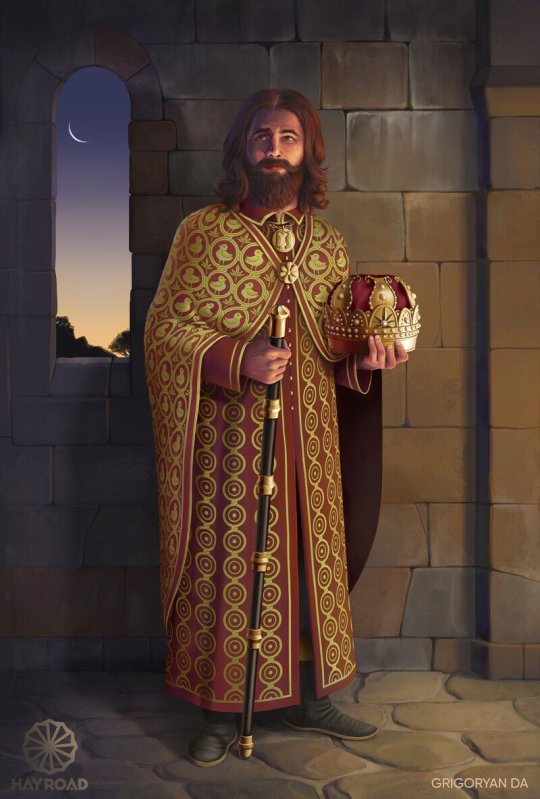
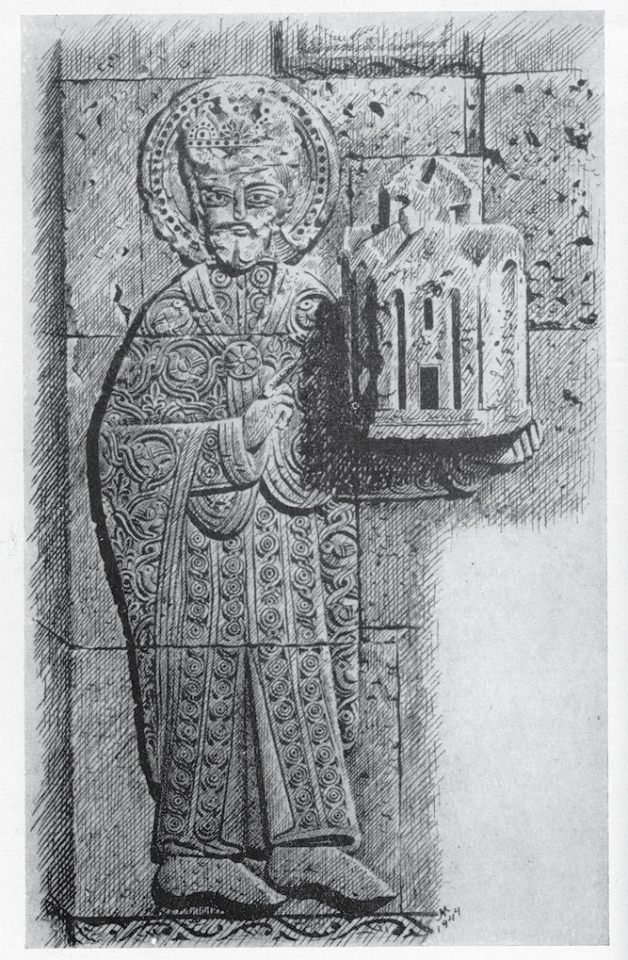
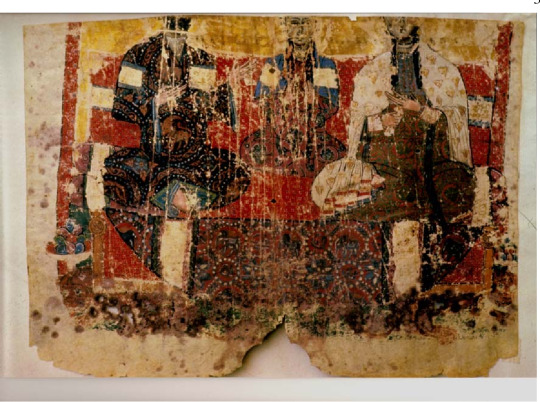
Women’s Embroidered Dresses: Traditional women’s dresses from regions like Syunik and Artsakh, adorned with intricate patterns and gold-thread embroidery, reflect a similar pride in craftsmanship seen in Dwarven culture.
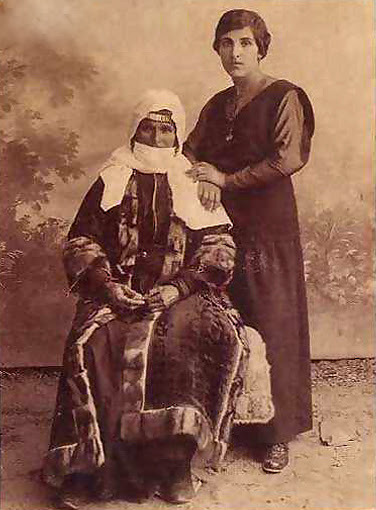
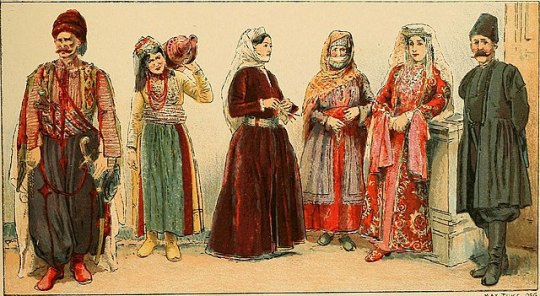
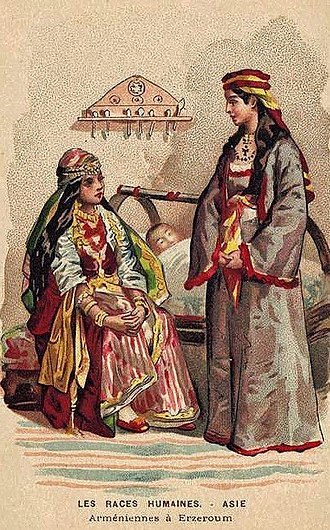
3. Craftsmanship: The Art of Metalwork and Jewelry
The Dwarves are famous for their skills as blacksmiths, miners, and jewelers, creating intricate items from precious metals. Armenia, with its long history of metallurgy, also boasts a rich tradition of metalwork and jewelry-making. Armenian craftsmen were known for producing exquisite silver and gold pieces, ranging from church crosses to ceremonial weaponry and jewelry.
Examples:
Armenian Crosses and Jewelry: The detailed filigree and gem-inlaid designs seen in Armenian religious artifacts show a high level of skill. These pieces could easily be imagined as treasures from the hoards of Erebor.
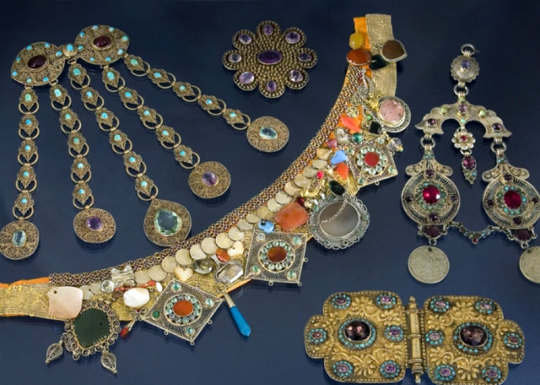
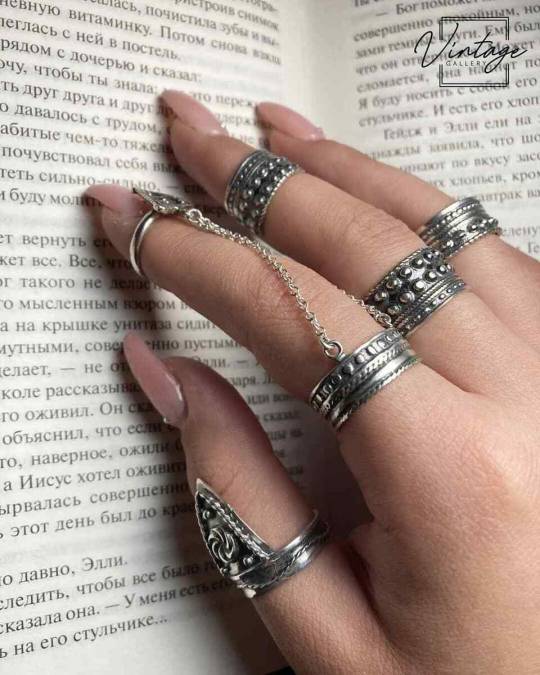

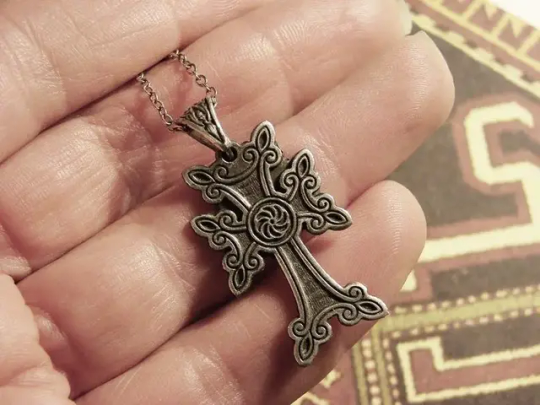
Ceremonial Swords and Armor: Historical Armenian weaponry, including richly adorned swords and shields, can also be found in museums. Their craftsmanship mirrors the care and pride of Dwarven smiths.
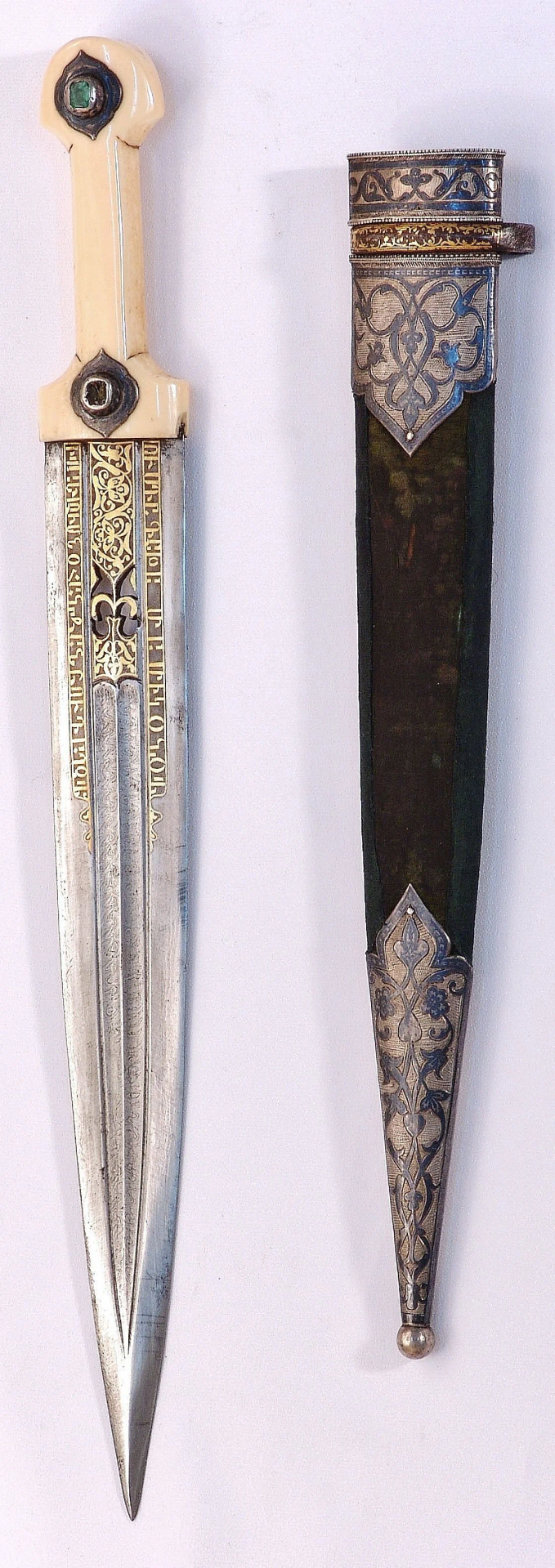
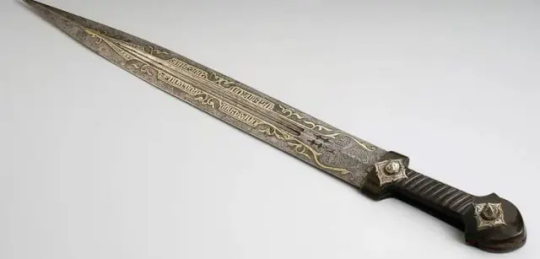
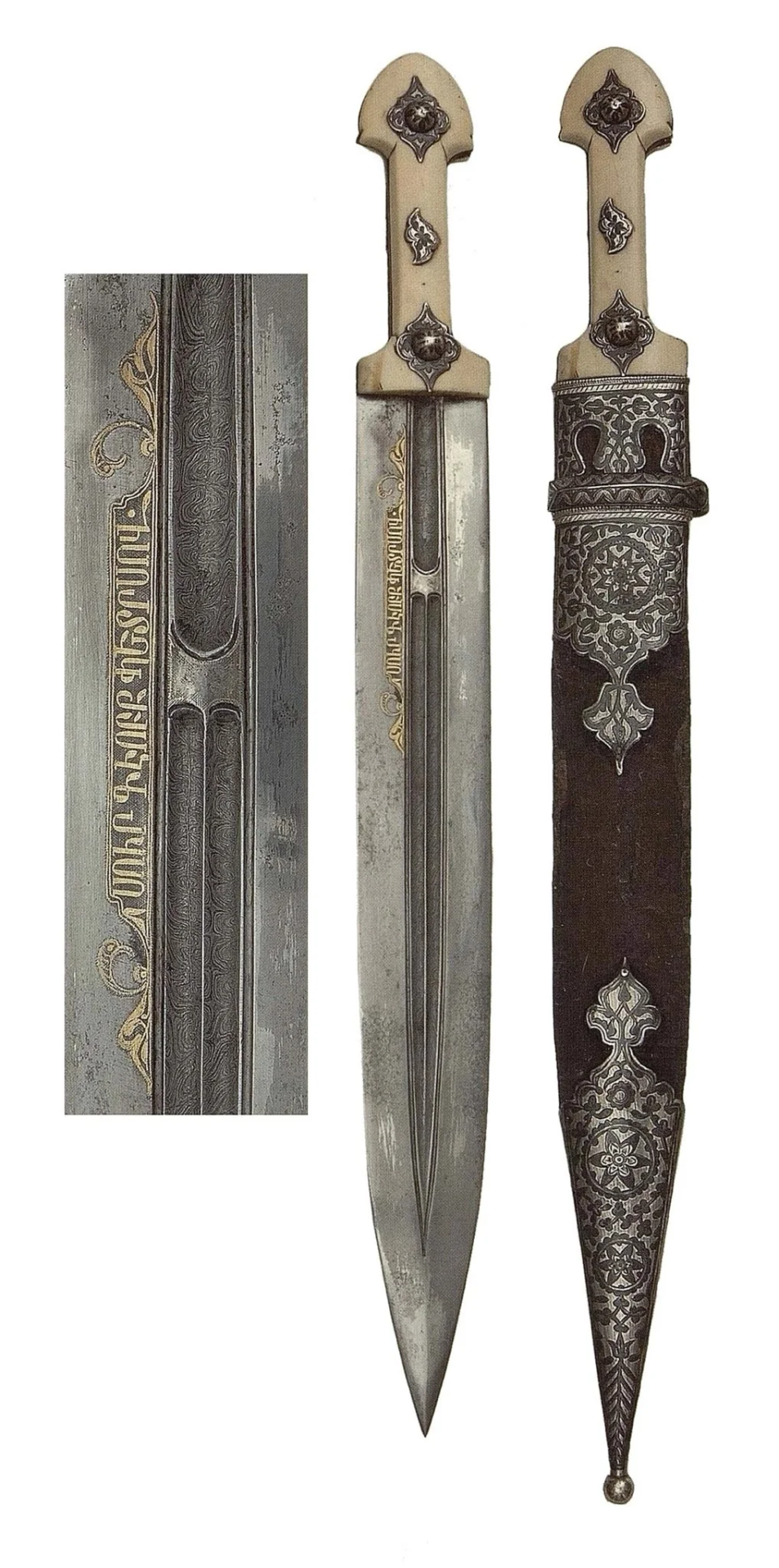
4. Resilience and Pride: A Shared Spirit of Survival
Both the Armenians and the Dwarves have a shared history of resilience and pride in their heritage. The Dwarves, displaced from their homeland of Erebor, strive to reclaim their lost kingdom, a narrative that echoes the Armenian struggle throughout history to preserve their culture and identity in the face of invasions and displacement.
Armenian history is marked by perseverance, whether through the maintenance of cultural traditions, language, or faith, even during periods of hardship. The Dwarves' determination to return to Erebor, despite the dangers, reflects a similar strength.
Examples:
Armenian Genocide Memorials: These monuments, while somber, speak to the resilience and enduring spirit of the Armenian people. They stand as a testament to survival, much like the return of the Dwarves to Erebor.
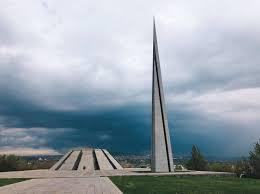
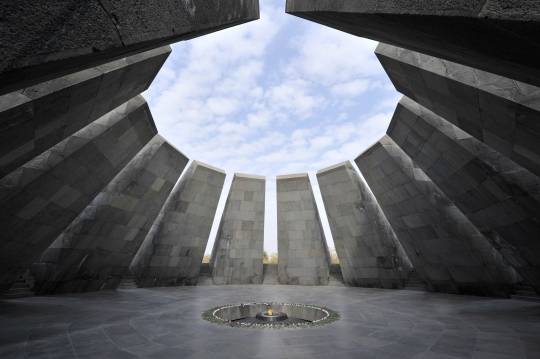
Mount Ararat: The iconic mountain, which has a deep connection to Armenian identity, is often depicted in art. It symbolizes endurance, much like the Lonely Mountain symbolizes hope for the Dwarves.

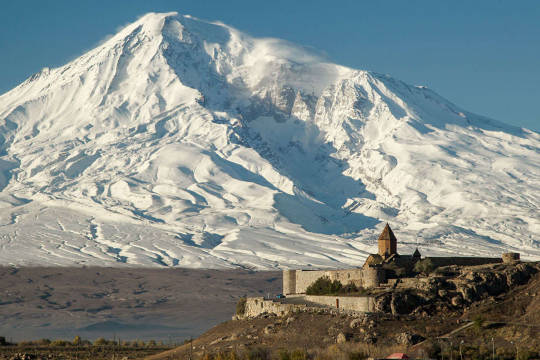

Conclusion
While there is no evidence that J.R.R. Tolkien based the Dwarves of Erebor on any specific real-world culture, the similarities between Dwarven and Armenian culture are striking. Both are defined by a love of stone, a tradition of intricate craftsmanship, and a deep-rooted pride in their heritage. These parallels offer a fascinating way to look at Tolkien's world.
113 notes
·
View notes
Text
The Legend Behind the Amethyst Bear of Love:
In the tranquil hamlets of Howa'ah, from the quaint Wyvern's Point to the windswept coastal villages of Highwater's Bay, whispered tales circulate about a mythical female bear spirit nestled amidst the ancient hills of Amethys. Unlike the formidable Howa'ahian ice bear lineage, this spirit stems from a much older and more enigmatic ancestry, one that has drifted into the mists of forgotten history. She embodies a tender fragility, a gentle essence adrift in the sands of time, her spirit tethered to the summer sun by a fragile thread.
Legend holds that in her mortal existence, she bore the heavy sorrow of being unable to nurture or raise offspring, ultimately passing away in solitude, her existence fading into obscurity. Yet, her enduring maternal instincts transcended even death, transforming her sorrow into a force of guardianship.
This benevolent spirit, cloaked in an aura of compassion, is said to seek out the lost, the ailing, the injured, and the frail. With an unwavering ferocity akin to that of a protective mother, she cradles the vulnerable in her ethereal embrace, nourishing even the youngest among them with her milk, a miraculous gift that signifies her undying devotion. Through her tender care and fierce protectiveness, she embodies a nurturing spirit that thrives in the heart of the hills, forever watching over those in need.
If one seeks profound guidance on the art of bleeding, the depths of love, and the wisdom of learning, yet finds themselves unable to glean knowledge from fellow humans, let them journey to the serene hills of Amethyst.
However, tread carefully; venture into her enchanting realm with a heart pure and intentions noble, for the land possesses an uncanny ability to reflect the true nature of those who dare approach it.
She is a sacred bear, and so too are the lands she inhabits. Journey beyond the undulating hills adorned with glimmering Amethyst, where the whispers of Howa'ah's summers linger like a sweet memory. There, you will discover a vibrant realm, a tapestry of lush greenery interwoven with delicate floral embellishments. This enchanted land is alive with a diverse assembly of creatures, both gentle herbivores and fierce carnivores, frolicking in a sanctuary crisscrossed by sparkling streams and meandering rivers that flow freely, unhindered by frost.
In this idyllic oasis, their search will lead them to a small sow bear—a creature of striking beauty. Her fur is as dark as the night sky, a soft, velvety black that contrasts beautifully with the warm, beige-gold accents of her muzzle and paws. Her eyes, shimmering pools of gentle Amethyst, reflect a depth of patience, understanding, and non-judgmental wisdom. Enveloped in an ethereal glow of amethyst light, she exudes a serene presence, inviting yet dignified.
Though her delicate frame is not forged for battle, do not be deceived; her love and kindness are not indicators of fragility. She embodies the fierce spirit of a goddess, ready to protect the young, safeguard herself, and defend her sacred realm with the unwavering ferocity of the wild.
They say to approach her with the warm embrace of a mother, the protective instinct of a father, the playful spirit of a sister or brother, and the loving heart of a daughter or son, and in return, she will reveal herself. Do not let fear cloud your mind; she is small and gentle, radiating an excitement akin to that of a seasoned host welcoming a cherished guest for the first time. With a joyful bound and a gentle grunt, she greets newcomers, her soft sounds betraying a delightful nervousness, as if she worries about leaving an impression or offending her visitor.
As part of her warm welcome, she presents tokens of her affection: a delicate wildflower, symbolic of those lost loved ones who have left their imprint on the world, and an enchanted dagger, a talisman meant to safeguard those who remain, ensuring their return from their journeys beyond her realm.
Once welcomed, she graciously invites her guest to explore the splendor of her land. With a flourish, she unveils fields carpeted in lush greenery, a vibrant tapestry of wildflowers dancing in hues of deep blues, pure whites, passionate reds, regal purples, soft pinks, and shimmering golds. She guides them through rolling plains and vast mountain valleys, alive with an extraordinary array of creatures—majestic Wyverns and ancient dragons soar overhead, their scales glinting in the sunlight, adding life and wonder to this enchanted paradise.
She will guide them to a magnificent temple concealed within the depths of ancient caves, where the walls and grand columns are crafted from shimmering Amethyst and glistening Glacial ice, intricately chiseled and shaped into stunning likenesses of herself alongside another majestic figure—the Howa'ahian ice bear, the revered God of Winter, Thrym. Within this awe-inspiring sanctuary, she will lead the traveler to a sprawling table lavishly adorned with a feast that could satisfy the appetites of gods and kings alike, overflowing with delicacies and richness that tantalize the senses. At this table, she will present two frail and famished Balladeer fawns, their wide, pleading eyes embodying the essence of vulnerability. In that moment, she will patiently await the traveler’s choice, a poignant crossroads: to satisfy their own hunger first or to extend a hand to nurture the needy and weakened creatures before them.
If the traveler takes a moment to tend to the fawns before satisfying her own hunger, she will welcome them as her 'students.' Should they choose to fill their plates and indulge in the feast, she will step back and allow them to feast without restraint. However, a dark enchantment lingers over the food; as they take their first bites, it will transform into acrid poison and ash, leaving them to choke on the bitter remnants before they can even savor the meal, and she will kindly escort them out of her lands.
A select few have claimed to see Thrym himself lumbering the hidden cave of the Amethyst Bear, where the air is thick with mystery and the scent of wild herbs. Yet, none have the courage to voice their curiosity or doubt about a King paying a visit to his cherished Queen, for such reverence is woven into the very fabric of their realm.
20 notes
·
View notes
Text
Free Tarot/Intuitive Reading - CLOSED
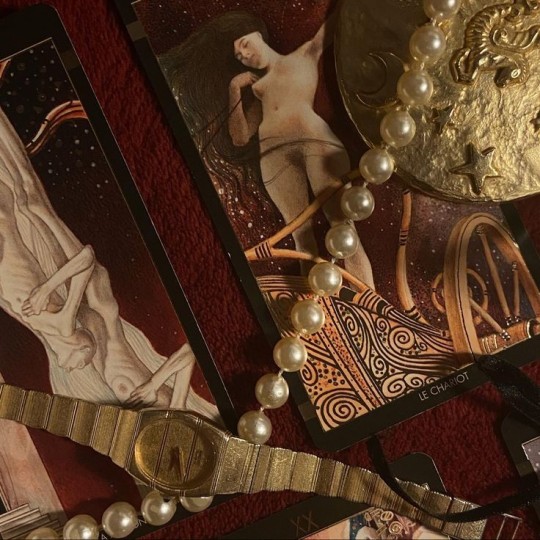
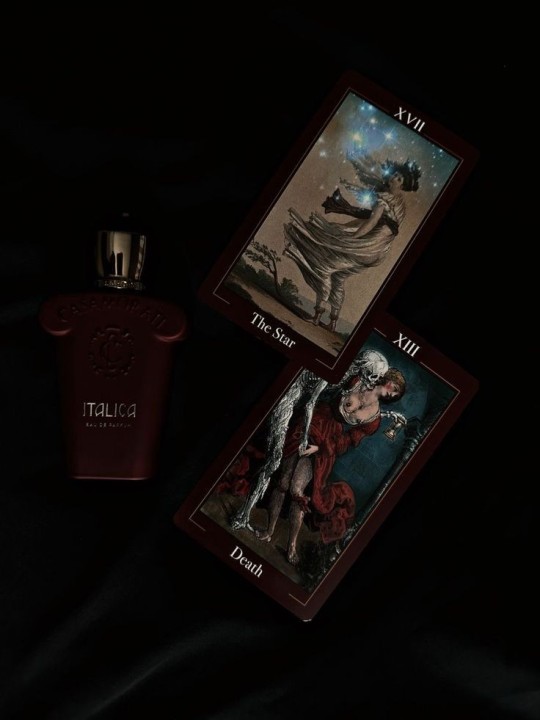

Greetings, noble souls and seekers of the mystic path! I, Goddess Divine, doth extend mine hand in the art of the ancient tarot, honed through three cycles of the moon. By the grace of the sacred goddesses, I offer thee guidance, woven in the threads of fate, to traverse the winding roads of life's labyrinth. Come forth, and let the mystical cards unveil the whispers of destiny that dance betwixt the shadows and light.

🗡 Follow Me
🗡 Like and Reblog this post
🗡 No questions through messages, only asks allowed
🗡 Anons allowed ;but you have to describe my energy
🗡 Maximum 2 questions per ask
🗡 Multiple asks allowed but give it some time
🗡 Ask should include a sincere greeting, your question, your working name's initial(s), your age, your sun, moon and rising.
🗡 I have the right to reject your question
🗡 No questions related to career, health, law and death
🗡 Celebrity questions allowed (nothing invasive)
🗡 Leave a feedback

#pick a card#pick a pile#tarot readings#tarot blr#inutitive readings#witch#pac#tarot community#free readings#dark feminine#witchcraft#astrology#magic#love readings#kpop readings#bts tarot#twinflame#soulmates
98 notes
·
View notes
Text
And flew like a moth to you, sunlight, oh, sunlight (The Fall of Icarus)
A Sunlight by Hozier x Daedalus and Icarus by Ovid x Jegulus fic
Read on Ao3
961 words
Regulus hated his life with his parents, even more now that his brother was gone. He longed to join Sirius in his self made exile. He couldn’t imagine a world without his love, but it had now been closed off by the seas between them.
But even though his parents, the seas, land and waves obstructed his path to Sirius and happiness, he would find another way. The land and the seas may hinder him, but the skies lie open. His mother might control many arts of magic and with that also people, but she did not possess, nor did she control, the sky.
Regulus knew he had to resort to unknown arts, magic not even familiar to his terrible mother. A type of magic that was hidden in the deepest part of their Black library. A magic that would allow him to change his nature.
The freckles on his shoulder blades, of which the Black brothers always claimed looked like constellations, were replaced by feathers in rows. A warm and foreign magic placed small feathers connected by thread on his skin, before adding longer ones. Then wax joined in such a way that eventually beautiful wings were created.
He was already standing near the window of his room. Isolated from his family, sent without food after the smallest of disagreements. He looked at the picture of Sirius, grinning at him from his dresser. He was unaware of Sirius’ peril on the other side of the seas dividing them, but aware of the urgency of his freedom.
Regulus admired the miraculous work of this ancient magic, and moved his thumb over the yellow wax. He let out a beaming smile, he could finally be free.
Regulus, however, was still a reasonable boy. He knew not to fly too low, for then the waves would weigh down the feathers. He knew not to fly too high, lest the sun burns the wax off his wings. He would find the golden middle course, which was already very familiar to him after years of mediating in the Ancient and Noble House of Black.
He also knew not to get distracted by other destinations, but to fly straight to Sirius. He knew he had to follow the path the magic paved for him; a dark purple string of stars.
As the magic seized the way, Regulus did not doubt his plan any longer. He threw himself out of the window with the unfamiliar wings, and with the fear of falling and failing, his cheeks grew wet. His hands trembled, but he blamed the strong winds. Underneath the night sky, he felt the stars kiss his cheeks, until the sun greeted him again hours later.
At first, Regulus felt like a young bird that jumped unknowingly from a high nest into the even more unknown skies. But with the magic guiding him, he soon flew like an experienced albatross, master of soaring flight.
He did not only see the night sky turn into a colourful and hopeful morning, but he saw the lives of those familiar with the sea. At night he saw many glowing jellyfish along the shore, before the fishermen took over in the early morning. He saw how the large whales avoided the big ships moving towards the docks. He did not only see the fishermen, but they also saw him. They believed him to be a god with his graceful flying.
Regulus, now more confident, deserted the path the magic had paved for him. Instead, he noticed another strong magic. Not purple and guiding, but sparkling and desperate. He was attracted to the desire to follow it, but the closer he flew, the more tired he became. However tired, the less distance there was, the more warmth his body received. The desire for that safe warmth spread from his fingertips to his heart.
The vicinity of the source of this wonderful magic overwhelmed him. After hours of flying he once again felt his entire body tremble. After the long journey, he felt the wax chipping away, the feathers following also. Feather after feather fell, until it was only his bare arms and a little bit of magic holding him in the air. It did nothing to halt him, especially not after seeing his destination. He shouted their names, first in glee, but then in fear. Until the sea right before them all took their names from him.
Both men startled into action. They found feather after feather in the waves, but not Regulus. Until one of them looked back to the shore, where a body lay protected by a purple mist made of stars.
It was not his brother, but another man, who reached Regulus first. In the most gentle way possible, James took Regulus in his arms. The stars danced around them in approval before they dissapeared into the sea’s gentle waves.
James felt immense relief as the boy breathed softly against the hand holding his cheek, and he felt his own tears brush over his cheeks. He felt his hands trembling before Sirius joined the embrace. Three of them shared tears of relief.
As Regulus met James’ eyes it was not his body that took flight, but his heart and soul. Like the stars just moments before, it was as if they danced around them.
Regulus had been a rational, reasonable boy, and had not flown too close to the sea nor the sun, but he knew that he had flown to his own sunlight. He flew like a moth to James.
His soul, like his heart, felt like it was filled by sunlight. A soul that was born in the cold and rain, was now surrounded by the love of his brother and the burning flame called James Potter.
#the marauders#harry potter#regulus black#james x regulus#sirius and regulus#sirius black#james potter#Deadalus and Icarus#greek mythology#sunchaser#jegulus
22 notes
·
View notes
Text
𝕱𝕺𝕵 𝕱𝖆𝖘𝖍𝖎𝖔𝖓 𝕾𝖕𝖔𝖙𝖑𝖎𝖌𝖍𝖙: ℜ𝔢𝔤𝔲𝔩𝔲𝔰 𝔅𝔩𝔞𝔠𝔨

"... I face death in the hope that when you meet your match, you will be mortal once more." - R.A.B.
°‧ 𓆝 𓆟 𓆞 ·。°‧ 𓆝 𓆟 𓆞 ·。°‧ 𓆝 𓆟 𓆞 ·。°‧ 𓆝 𓆟 𓆞 ·。°‧ 𓆝 𓆟 𓆞 ·。°‧ 𓆝 𓆟 𓆞·
Regulus Arcturus Black, an enigma within the Harry Potter Franchise that never actually appeared on screen but left behind an everlasting legacy. Inspiring fan content from around the globe, Regulus Black is a popular character in the realm of fanfiction, and the same goes for my own up-and-coming fanfic, FOJ, which will be uploaded to AO3.
Let's get to the point of the post.
FOJ is canon compliant (to an extent), but one of the things I will tweak in the sense of the original HP universe is the fashion. I've seen many fans critique the Wizarding World's attire, and I've found myself agreeing with the opinion that JKR could've been more... creative.
Since Regulus is (mostly) a fanon character at this point, I've taken the liberty of styling him in the universe of FOJ. This post will contain his general fashion and some of the outfits he will be seen wearing in the fanfic.
So, without further ado:
𝕮𝖆𝖕𝖊𝖘

Antique Victorian Cape Jet Beaded Black Velvet Mantelet or Capelet
Yep, we're going Victorian with this one. Most of the outfits (of Regulus and of this series) will be Victorian or Edwardian inspired.
I see Regulus as a mysterious, yet elegant type of guy. He follows and exemplifies his family's blood purist and anti-muggle beliefs, so it's safe to assume he adheres to rules, traditions, and customs.

Evening cape
"This style of round cape was de rigueur in the mid-1890s. The elaborate large-scale embroidery and delicate silk ruching amidst the alluring changeante velvet displays the rich opulence of the fashions of the period." - Metropolitan Museum of Art
The Ancient and Most Noble House of Black is one of the richest Wizarding Families in all of Britain, and of the Sacred 28, so Regulus wouldn't be spared from the luxury of expensive garments and lifestyle.
12 Grimmauld Place is depicted as very gothic and old-fashioned, so Edwardian and Victorian gothic it is.
𝕮𝖑𝖔𝖆𝖐𝖘

Pure Wool Cloak
"Pure wool cloak, fastening with hook and adjustable chain attached to two molten lions Adjustable buckle closure." - Original Venice
Surprise. Yeah, still in the Wizarding World, will still need some cloaks lying around. Only the best quality for the members of the House of Black, of course.

CLOAK OF DARKNESS - BLACK TAPESTRY
"Made in rich flowing black tapestry fabric with rich black satin lining inside... Braided black trim lines the collar and along the front of cape. Fastens in front with a heavy antiqued chain which clasp at either side to heavy D-rings and decorated with two ornate metal buttons." - Shrine of Hollywood
Called forth for more elegant occasions during the chill, like balls or galas.
𝕿𝖆𝖎𝖑 𝕵𝖆𝖈𝖐𝖊𝖙𝖘

Peacock Embroidered Cotton Doeskin Jacket (right) | Alexander McQueen
This garment inspires the first scene in FOJ that calls for a more formal occasion amongst family, the invitation of the Malfoys and Lestranges into 12 Grimmauld Place.

A different view.
For the FOJ version, the golden embroidered peacock will instead be a black bird sewn with silver thread, and the black of the cotton doeskin will either stay that way or sport a phthalo green hue.
°‧ 𓆝 𓆟 𓆞 ·。°‧ 𓆝 𓆟 𓆞 ·。°‧ 𓆝 𓆟 𓆞 ·。°‧ 𓆝 𓆟 𓆞 ·。°‧ 𓆝 𓆟 𓆞 ·。°‧ 𓆝 𓆟 𓆞。
This post will be subject to edits as my fanfiction progresses/if I differ in opinion. I encourage any comments and constructive criticism one may have for this post, please correct and educate me if you are so inclined, I will appreciate it.
°‧ 𓆝 𓆟 𓆞 ·。°‧ 𓆝 𓆟 𓆞 ·。°‧ 𓆝 𓆟 𓆞 ·。°‧ 𓆝 𓆟 𓆞 ·。°‧ 𓆝 𓆟 𓆞 ·。°‧ 𓆝 𓆟 𓆞。
Next up on Fashion Spotlight: 𝕭𝖊𝖑𝖑𝖆𝖙𝖗𝖎𝖝 𝕷𝖊𝖘𝖙𝖗𝖆𝖓𝖌𝖊 ☠︎︎
#harry potter#harry potter fashion#regulus black#the maruaders#regulus deserved better#fanfic#fashion#my fic#my fanfiction#victorian#victorian era#gothic#goth aesthetic#edwardian#edwardian era#historical fashion
7 notes
·
View notes
Text
The night was alive with music, laughter, and the flicker of candlelight, the grand hall of Thranduil’s palace filled with the sound of rich conversations and the elegant clinking of fine goblets. Lords and ladies, from all corners of Middle-earth, mingled in the grand ballroom, each one wrapped in silk and velvet, their laughter ringing in the high ceilings of the hall. A feast had been prepared for the gathering, the golden glow of the evening mingling with the rich, earthy tones of the Woodland Realm.
But amidst the splendor of the evening, one presence seemed to hold the attention of all.
Faelwen stepped into the grand hall, her deep green gown shimmering like the leaves of the ancient trees that surrounded the Woodland Realm. The silver embroidery that traced her form reflected the moonlight, subtle hints of her origins in Lothlórien woven into the intricate threads. She was the picture of elegance, yet there was a wildness to her, a strength and beauty that could not be denied. Her gaze, a quiet storm of determination and grace, swept over the room as she made her way toward Thranduil's side.
Her brother, Haldir, stood by the doorway, watching her with a small smile, his eyes crinkling at the corners as she moved past him. When she turned to join Thranduil, he cleared his throat, a silent warning, his eyes darting toward her hair. Faelwen’s dark tresses had been pinned back with elegant, intricate hairpins, each one a work of art—sword-like, with delicate metallic designs that resembled dragons, mythological motifs, and sharp edges. Even here, in the grandeur of the ball, she was ever the warrior, ever the protector.
Thranduil’s gaze was sharp, and he caught Haldir’s subtle look with a glimmer of amusement. He smirked and turned toward Faelwen, his fingers wrapping gently around her wrist as he guided her closer, his eyes never leaving her face. With a smooth motion, he slipped the pins from her hair, the delicate metallic pieces falling into his hand as her dark locks tumbled down her back, cascading like a waterfall of shadows.
He leaned in close, his breath warm against her ear as he whispered, his voice low and teasing, “Darling, you do not need to be armed all the time.”
Faelwen's lips quirked into a smile, and she leaned in just as close, her words spoken with a playful, daring tone, "Then I will not be telling you what else I have on me, My Lord."
Thranduil’s eyes darkened, a quiet amusement flickering in the depths of them. He handed the dagger-like pins to Haldir, who accepted them with a smirk of his own, his eyes now locked on his sister’s as if waiting for her next move. Thranduil’s hand moved to her own, his fingers warm as they rested upon hers. Together, they made their way toward the front of the room, heads turning as they walked through the gathered nobles, the air charged with anticipation.
As they stood at the front, ready to be announced, Thranduil’s heart beat steadily in his chest, but there was a quiet ache beneath that, a love, a possessiveness, something fierce and untamed that he could never quite suppress. Faelwen, at his side, felt that pull too—her heart ever intertwined with his, the bond between them unspoken but felt in the very air they breathed.
The herald raised his voice, a deep, resonant call that filled the hall, “Lords and Ladies of Middle-earth, King Thranduil of the Woodland Realm, Lady Faelwen, Commander of the Woodland Realm!”
A hush fell over the room as all eyes turned toward them. For a moment, the world seemed to stand still, the silence heavy with the weight of the announcement. Faelwen felt the gazes of the room upon her, felt their curiosity, their wonder, but more than that, she felt Thranduil beside her, his presence like an anchor, a steadying force in the midst of the swirling tide of attention.
Thranduil stood tall, regal, his golden hair almost silver in the candlelight, the faintest hint of a smile on his lips as he looked down at Faelwen. She, too, stood poised, her chin lifted with quiet pride, the faintest flicker of a smile playing at her lips as she met the eyes of the gathered lords and ladies. She was his, as much as he was hers, and no title, no grand ballroom, could ever change that.
As the murmurs rippled through the room, Thranduil’s hand found hers again, and he squeezed it once, a silent promise, a reminder that together, they were unstoppable. Together, they would face whatever challenges arose, whatever trials Middle-earth had in store. For now, though, in this moment, they were simply King and Commander—partners in everything.
And no one, not even the stars above, could deny the quiet power in the way they stood together.

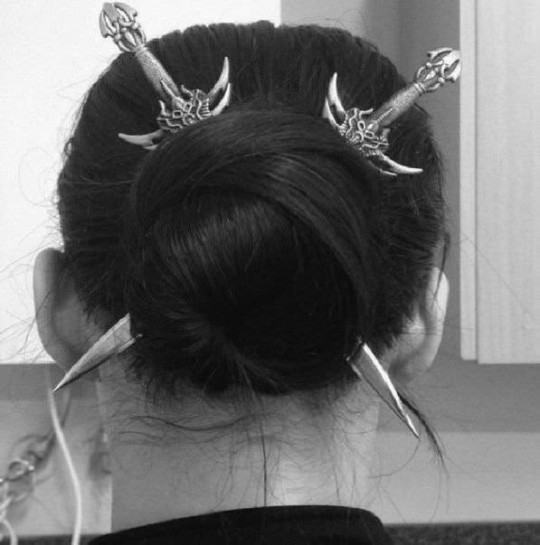
#thranduil#thranduils#fanfic#hobbit#the hobbit#king thranduil#lotr elves#tolkien elves#mirkwood#Faelwen and Thranduil longer story
3 notes
·
View notes
Text

Timeline: Mid February, 2025 Notes: In which Polaris completes a contract and rejoins the Thieves Guild Word Count: 1510
There might never come a day when Polaris could walk familiar streets without seeing the bones that waited beneath. Lôrien'dal, a city built upon the remnants of the Cataclysm, carried echoes of its past beneath every cobblestone. Yet, the Hare’s directive had been clear. A decade ago, the dragon might’ve hesitated. But after ingratiating himself into the elvhen court, he welcomed the chance to sharpen skills dulled by neglect. Polaris would spread his metaphorical wings, sharpen his claws, and prepare to take flight once more.
Polaris moved through the city with the grace of a shadow woven into its tapestry. The air carried the sweet scent of night-blooming jasmine, mingling with the distant whispers of fountains and the hum of twilight conversations. The master bard could, at any time, be as noticeable or as inconspicuous as he desired. Unfortunately mastery didn’t come with the symptoms of fame and even when Polaris moved silently there was every risk of detection lurking around the corner. Nobles of the Silverlands did what they did best: talk. Polaris played his part well, charm and wit drawing them closer as he steered conversations toward recent arrivals and whispered dealings.
Lord Eolande’s estate towered above the city, its spires brushing the sky. Within, vaulted ceilings arched over walls adorned with tapestries depicting ancient heroes, while a harpist’s silver melody threaded through the air. Accepting a goblet of wine from a passing servant, Polaris surveyed the room with casual ease, eyes flicking from one cluster of nobles to another. His smile masked the flicker of tension within - a reminder of the stakes should he fail. At every turn, the Great Game was at play, but Polaris introduced another set of rules. He wouldn’t trade blows at the top of the stairs, or snatch at someone’s hand when they reached for concealed secrets. No, he would smile, entertain, and do what came naturally to the bard - gather intel.
It was Lady Lyria who offered the first thread worth pulling. Her smile hinted at mischief as she leaned close, voice dipped in conspiratorial whisper as she spoke of a merchant who frequented the quarter, one with a key of a most unusual make. It was Lady Lyria’s assumption that the goods the merchant peddled were ill gotten, but Polaris could only press, good-naturedly, how might such a possession come into unwitting hands?
Polaris thanked her with a smile that promised secrets of its own. Yet, as she departed, a trace of unease lingered in his chest. Trust was a currency he could ill afford but his mask was convicted and irrefutable, while she remained every bit the gossip he remembered. Naturally, there was an invitation to follow her between the sheets but with work at hand and someone waiting for him back in Eterna, Polaris abstained.
The days that followed were a dance of shadows and patience. The market’s clamor of spices, silk, and whispered deals became his stage. His gaze lingered on the fountain’s shifting reflections - stone carved with scenes from the city’s past. When the merchant appeared, Polaris followed. He learned the cadence of the man's life: dawn visits to the market where fingers traced rare silks and eyes scanned ancient scrolls, afternoons spent in half-empty taverns whose shadows clung like old secrets, and nights at a secluded inn on the outskirts where murmured conversations danced beneath candlelight.
Patience became Polaris’s closest ally. Rain soaked through his cloak as he waited in alleyways veiled in half-light. Steps softened against cobblestone as he followed from rooftops where lanterns flickered like distant stars. More than once, the merchant glanced over his shoulder as if sensing unseen eyes, but Polaris had honed invisibility into an art long before this city’s stones were laid. Each heartbeat marked a step in the slow, deliberate waltz of predator and prey.
Yet, beneath the rhythm of his pursuit, old memories stirred. Centuries of service whispered in the corners of his mind - the faces of kings and courtiers, debts sealed in blood, and alliances forged in shadow. He had worn a thousand masks, each tethered to another’s will. And yet, each step through Lôrien'dal’s labyrinthine streets stirred something unfamiliar - a longing not for freedom, but for a purpose shaped by his own hand.
On the fifth night, Polaris found the merchant alone, seated at a corner table in the tavern near the city’s western gates. Lamplight glinted off a silver key that hung from a chain at the man’s belt - a key that Polaris knew held the final thread to his quarry. Rain whispered against the window as Polaris settled into the shadows, his gaze never leaving the merchant’s hands as they traced the worn edges of a leather-bound ledger. The air between them hummed with unspoken tension, a silent acknowledgment that the chase was nearing its end.
A night of rain veiled Polaris's approach as he trailed the merchant through the city’s labyrinthine alleys. Stone lanterns cast pools of golden light, their reflections shimmering in rain-slicked cobblestones. When the merchant paused at a secluded doorway, Polaris melted into shadow. His heart beat steady, his breath slow as the man disappeared within. Minutes later, Polaris stepped forward, fingers tracing the faint emblem etched into the door’s frame - a sigil of the Hare’s network. The game was nearing its end.
Lord Eolande’s grand event arrived with a hush of anticipation. Candlelight glimmered against silk and silver, and the air thrummed with whispered schemes. Polaris, dressed in midnight velvet, took to the stage with his lute, recently polishing the rust until his instrument. Fingers spun melodies of longing and moonlight, holding the crowd rapt. At the back of the room, the merchant lingered - eyes sharp despite the wine in his hand, fingers brushing the key at his belt with a reflex born of habit.
Polaris moved through the crowd as if carried by the music’s spell. Each step measured, each glance calculated. Passing the merchant, his hand brushed fabric for the barest instant - swift and unseen.
The key was cool against his palm.
No cry of alarm followed. No eyes turned as Polaris vanished into the sea of silk and candlelight. At the room’s edge, Lady Elowen watched him - a cascade of silk and jewels carved from moonlight and ambition. Polaris slipped the key into a place she would find it, along with a note bearing the Hare’s regards and a flourish of his own: For the pleasure of your company.
As the final notes of the evening faded, Polaris bowed to the gathered nobility, their applause rising like the hum of distant wings. This revelry came easy to him, it was a simple dance carved between himself and the mindless masses that flit about. It wasn’t as if Polaris held any contempt for them, but the dragon was in a constant contest between what he was, what the Aetherians had tried to make him, and what he might yet make of this age. The lines of laughter could be traid, circulating the bard’s atmosphere before Polaris faded away, seamlessly. When the last echoes faded into murmurs, he was gone - vanishing into Lôrien'dal’s night, his task complete.
Beyond the estate walls, the city stretched beneath a canopy of stars. Polaris moved through narrow streets where lanterns swayed on iron hooks, their golden glow painting shifting patterns across stone. Yet, as he paused beneath the arch of an ancient bridge, another thought stirred - one that whispered of choices unmade and paths unseen.
Laughter followed. A sharp bark that echoed off the cold, wet stones of the archway. He’d done it - beautifully - in fact. Without a witness and with nothing more than a pair of elvhen hands. For the dragon, this should have been a meager accomplishment when the trials of the Eluvian still hung behind him. But he felt alive and in control for the first time in an age. Not an Aetherian puppet, or a creature clinging to a veneer that he couldn’t hold, instead someone finally taking steps to regaining his autonomy.
Too many years Polaris had been carved into just one shape, but he’d come to learn that this caste that he’d been put into could be broken. The chains the Aetherians bound him with still left their mark in the form of scars that would never heal, but the dragon would never be that prisoner again. He was unbound and unchained and beholden to nobody’s whims but his own. Polaris had felt it in the wind and heard it in the breeze, drifting from the lips of adventurers and peddlers alike: the age of the dragons had come.
His path led beyond Lôrien'dal, but Polaris lingered in its depths a moment longer. Beneath ancient arches and starlit eaves, a shadow within a world of whispers, he wondered if the day might come when he would walk these streets free of ghosts. For now, the night embraced him as one of its own, and he vanished into its depths once more:
Mission complete.
3 notes
·
View notes
Text
Notable Paladins of the Morninglord Currently Training in Lunamire
There are approximately 53 paladins in training in the barracks of Lunamire. Of these, six are in the player characters' relative age group and experience level.
Celestian Dionisie Balauru
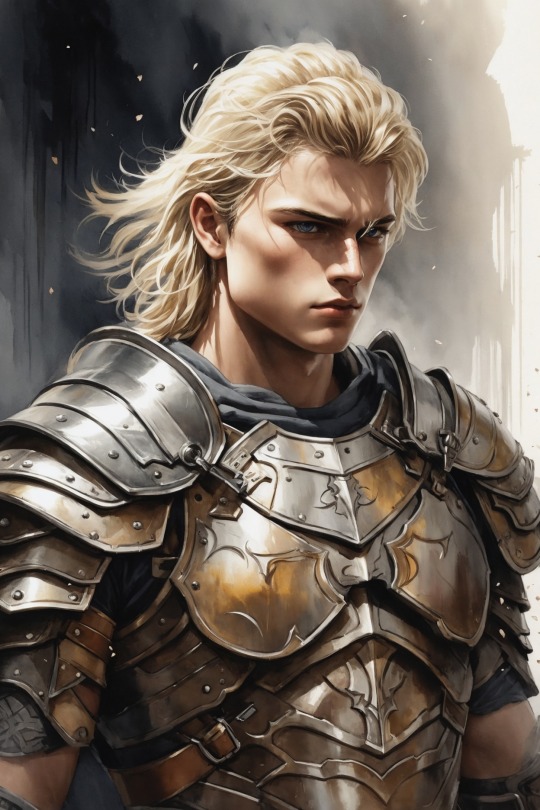
Celestian Dionisie Balauru, a devoted Paladin of the Morninglord, emerges from the lineage of lesser nobles, his path marked by valor and faith. Aged 19, his youth belies a wisdom beyond his years. Guided by his unshakable devotion, Celestian wields his blade gracefully, defending the righteous and standing sentinel against darkness. Born of noble blood, he rejected complacency, choosing instead a life of purpose. His resolute spirit is matched only by his unwavering belief in justice, a beacon of light amidst the shadows. Celestian champions the Morninglord's cause with each step, a steadfast guardian of hope and virtue. When not training, he studies ancient history, legends, and lore. An avid bibliophile, he often borrows books from the ex-Burgomaster's Taddeus' library. Consequently, he also appears to have a romantic interest in his daughter, Laffira.
Costi Negrescu
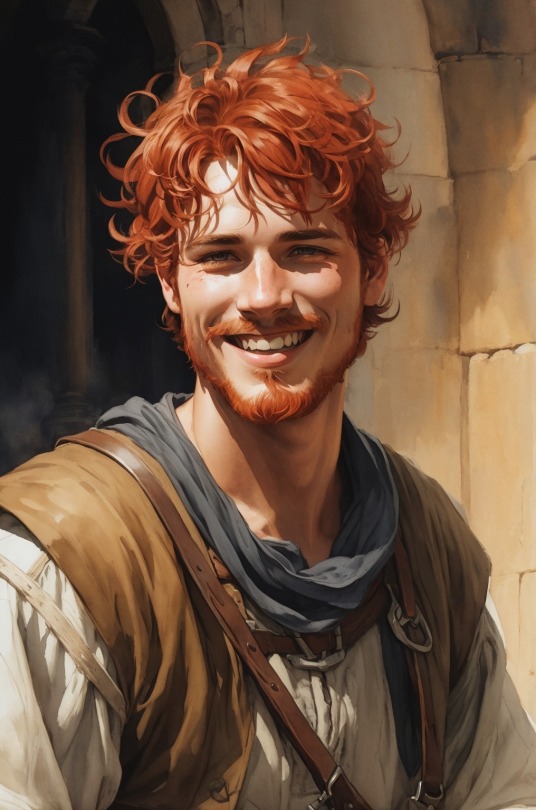
Costi Negrescu, a paladin serving the Morning Lord, possesses a unique path forged by fate's hand. Aged 23, his journey began as a thief in the bustling market of Vallaki. He was caught stealing and was about to lose both hands when a paladin intervened on his behalf. Costi was so grateful that he became a squire and eventually trained as a knight. Costi loves to drink, climb trees, and play pranks. Best friends with Zaaida. Nicknamed "Drunken Costi."
Ivan Devaux
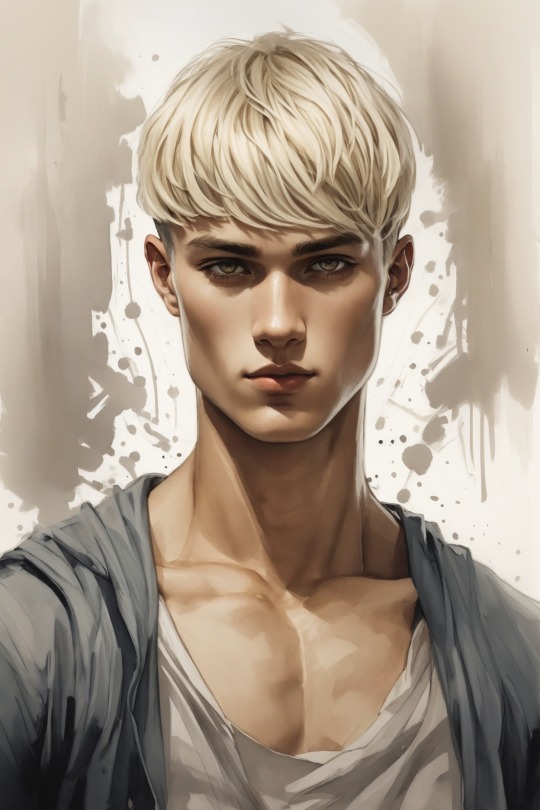
Ivan Devaux, an earnest paladin-in-training at the Temple of the Morning Lord, hails from a quiet village on the outskirts of the enigmatic Barovia. Aged 17, his path is illuminated by faith and the dawning light. Amidst the temple's teachings, he finds solace in wielding polearms, a unique skill he's honed with dedication. Beyond his martial pursuits, Ivan's heart thrives in the gentle art of sketching the swamps' elusive wildlife, capturing their essence on parchment. A lover of still waters, he often retreats to the tranquil shores, casting lines and embracing the harmony of fishing. Ivan's soul is woven with the threads of art, devotion, and valor. Good friends with Spurio, they often wander the wilderness together.
Zaaida el-Barakat
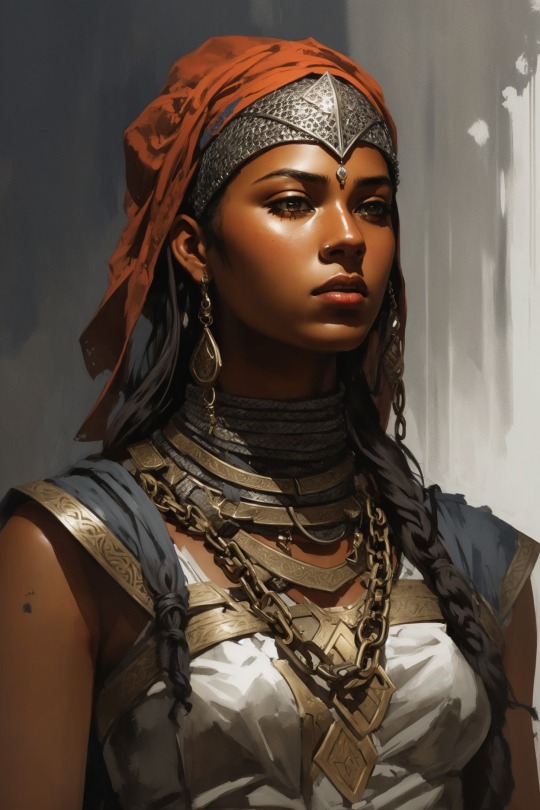
Zaaida el-Barakat, a steadfast Paladin of the Morninglord, carries the radiant mantle of hope. Aged 24 and of Terg origin, she was orphaned during the war and taken in by the church. Her bond with fellow brothers-at-arms is resolute, yet at times, she grapples with dejection–always an outsider in Barovian culture. She has begun penning a chronicle of the war, jotting down any and all stories of battles, victories, and Terg defeats. She has taught several paladins the Terg language. One of five female trainees among the ranks. Best friends with Costi.
Vlad Basti Rosen

Vlad Basti Rosen, a determined paladin-in-training at the Temple of the Morning Lord, was orphaned in the crucible of war. Aged 20, his spirit is tempered by the loss of his family yet ignited by his faith. Amidst rigorous training, he excels in spirited athletic contests, channeling his boundless energy into feats of strength. A connoisseur of baked delights, his heart finds comfort in the village's array of confections. Vlad's two-weapons fighting style is superb, a testament to his dedication. Yet, his most profound secret lies in his unspoken love for Elena the Baker.
Gavril Herrlein
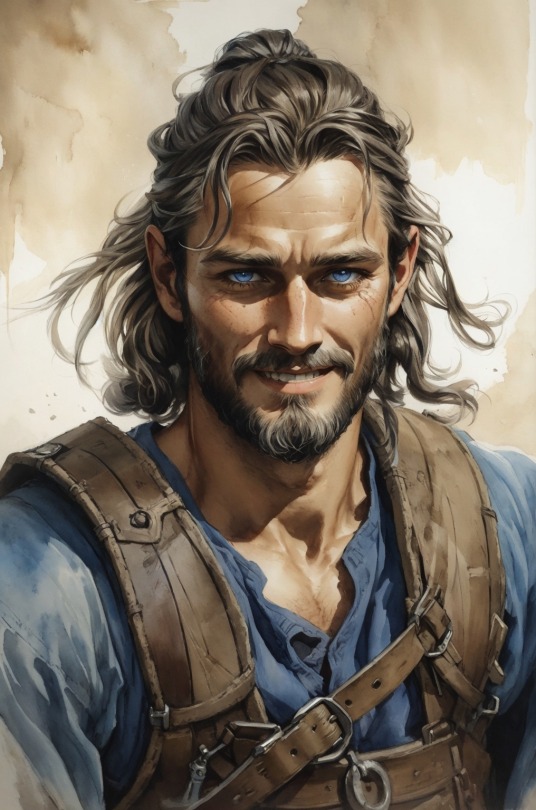
Gavril Herrlein, a seasoned paladin-in-training at the Temple of the Morning Lord, is the group's elder statesman at 35. His age belies his tenacity, often guiding the youngest with his accumulated wisdom. A familiar figure in the training yard, he engages in wooden sword sparring sessions, honing his and others' skills. Talkative and mild-mannered, though occasionally veering into pessimism, Gavril's words carry a wealth of experience. A veteran of the latter days of the war, haunting nightmares are the remnants of his battles. Through it all, his unwavering dedication to the light remains a beacon for those he mentors. Gavril lost his wife in the war and fell to despair, eventually turning to the church for guidance.
Alex Drijus Von Vollis
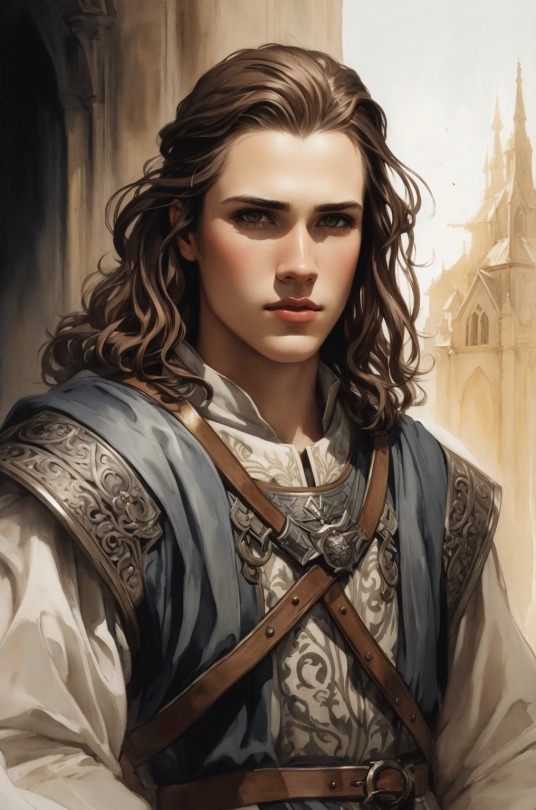
Alex Drijus Von Vollis, a young paladin-in-training at the Temple of the Morning Lord, is the tenth child of a noble house, sent to the church for reform. At 16, his fiery temper clashes with the teachings of the Morninglord. Yet, his compassion for animals and dedication to swordsmanship shine through. Struggling with arrogance and violence, he's faced oaths of silence as punishment. While his skills and potential are evident, his probationary status casts uncertainty on his future as a paladin. Alex has an apparent dislike for Spurio, Zaaida, and Darius.
Spurio Bedirhan
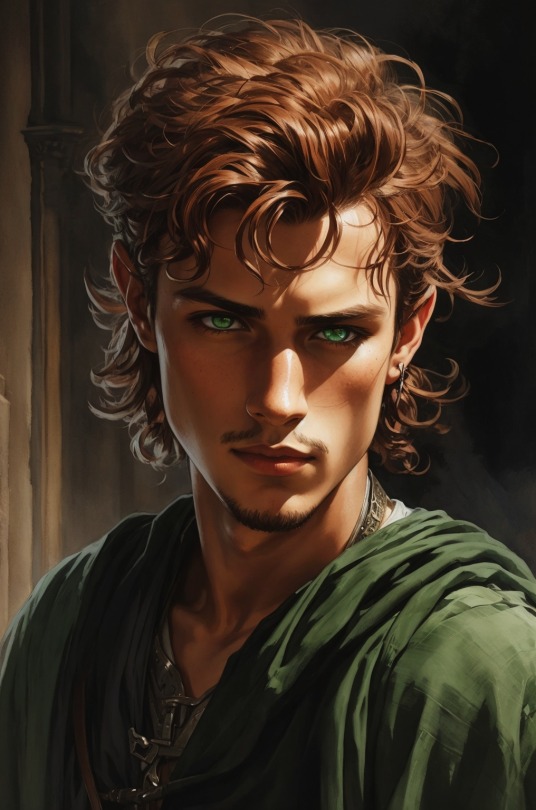
Spurio Bedirhan was left at the church's steps in Vallaki by his Vistani parents. Once orphaned, he was educated by the church and sent to train in Lunamire. Now aged 18, he wields two shortswords with remarkable dexterity, favoring supple leather over clunky metal armor. His faith is unwavering, demonstrated through earnest meditation and fervent prayers. Beyond the training grounds, Spurio loves to dance, play music, weave tales, and forage for medicinal herbs and berries. His youth belies his dedication and aptitude as he navigates the dual paths of combat and spirituality, driven by a profound sense of purpose. Spurio is extremely attractive and more than one of the young women in town has shown romantic interest. He seems oblivious.
Luca Ciprian Ionesco

Luca Ciprian Ionesco, inseparable from his best friend Darius, stands out with his wiry frame among the paladins. Despite being the least physically endowed in his age group, he endures training's beating with determination. A farmer's son from Krezk's outskirts, his strong work ethic shines. Luca's heart bursts with love for Alara, though she scarcely notices him. His passion for throwing daggers and crafting them complements his hardworking nature.
Darius Qhudihe Shrabomos
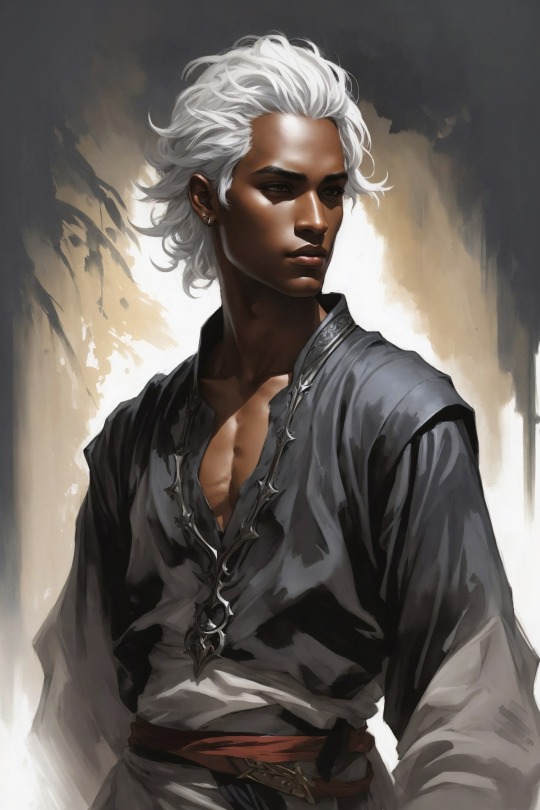
Darius Qhudihe Shrabomos, a product of divergent lineage, bears the mark of being half Terg, half-drow. Rescued from the clutches of a roving Vistani circus, where he was grotesquely exhibited as a cannibalistic anomaly, fate led him to the church's embrace. Education and training under the church's tutelage now pave the path of his redemption as a paladin serving the Morninglord – a sardonic twist of fate he keenly feels. Daylight poses a challenge, causing him to seek sanctuary within the abbey's subterranean recesses. Suspicion and prejudice from villagers shroud his attempts at camaraderie, yet his commitment and trustworthiness have endeared him to his peers in the barracks. Sir Brandak champions inclusion and will not stand for the lesser treatment of Darius. Luca is his closest ally. Twenty years of age, Darius hones his scimitar skills under Spurio's guidance, finding solace in astronomy–a discipline that favors night. He embodies the distinctive appearance of his people – stark white hair, pointed ears, and a dark brown complexion. Darius, who speaks Terg, Drowish, and Vistani, profoundly resents the Vistani, especially the Corvara Boemians. Some of the young women in town are curious and intrigued by Darius but too afraid to talk to him.
5 notes
·
View notes
Text
Title: Apologia: A Dialectic of Self and Other
In the labyrinthine corridors of the mind, Where shadows of introspection dance, There lies a chamber, oft unkind, Yet therein dwells a chance— A chance to reconcile the self with the other, To weave a tapestry of understanding, Where the threads of apology and discovery Are spun with hands unending.
Apologia, a term both ancient and profound, Is not mere contrition, nor a simple plea, But a dialogue where silence is unbound, And the soul seeks to be free. It is the art of unveiling the self, In the mirror of the other’s gaze, To find within the depths of shared reflection, A path through the labyrinthine maze.
In this dialectic, the self is both sculptor and clay, Molding the contours of its own becoming, Yet shaped by the chisel of the other’s say, In a dance of perpetual unbecoming. For to apologize is to acknowledge the fracture, The fissure in the fabric of shared existence, And to offer, not a plaster, but a structure, A bridge built on the pillars of persistence.
Philosophers have long pondered this act, From Socratic dialogues to existential musings, Where the apology is not an abstract fact, But a lived experience of choosing. Choosing to embrace vulnerability’s embrace, To stand naked before the tribunal of the heart, Where the self is both defendant and case, And the verdict is a new start.
Yet, in this courtroom of the soul, Where the gavel is empathy and the jury is time, The apology transcends its initial role, Becoming a symphony, a sublime rhyme. For in the act of sincere contrition, Lies the seed of transformation’s bloom, A metamorphosis beyond mere admission, A phoenix rising from the ashes of gloom.
Thus, let us not fear the apologia’s call, Nor shun the mirror it holds to our face, For in its reflection, we may find the all, The unity of the human race. In the dialectic of self and other, Where apology is both art and science, We discover the profound truth that to recover, Is to dance in the harmony of alliance.
In conclusion, let us embrace this noble art, With minds open and hearts unafraid, For in the apologia, we find the start, Of a journey where bridges are made. A journey where the self and other unite, In a symphony of understanding and grace, Where the apology is not an end, but a light, Guiding us to a more compassionate place.
0 notes
Text
Intertextuality in Poetry of the Roman Classical Period
In every age of human history, people have been telling stories, and creating art and poetry. However what a story is, and how it is expected to be told has differed over the ages and across cultures, particularly the idea of what a "Good story" can be. For example, nowadays in the 21st century it is most common for a written fictional text to be presented in prose, and for the authour to have an advanced understanding of grammar and syntax as well as skill in formulating and telling the story. As opposed to, for example, just publishing a script with stage directions. In the ancient world, in Rome, across its ages, there were also ways that a fictional story or myth was commonly told. As may be evident, fiction being presented in poetry or verse was almost ubiquitous. To have a story without it being presented in poetic verse was almost unheard of, and to be skilled in usage of verse was a skill that was not only venerated amongst the artistic nobility but also expected if one were to attempt to compose a fictional work. And crucially, as will be explored in this post, the idea of intertextuality was extremely prevalent in many bodies of surviving Roman poetic work. Possibly as a result of only a few authours being venerated as the best, and a good portion of trained artisanally inclined literate nobles all being familiar with that certain body of works, referencing them and playing with the implications to add layers of subtext amongst their equally well-read Roman peers, is one common thread in the works I will explore here- albeit in different ways with different levels of emphasis.
OVIDS HEROIDES (Emphasis on Heroides 7)
A good example of intertextuality in Roman classical work are a series of poems written in Hexameter verse authoured by "Ovid" (Publius Ovidius Naso), which are titled "Heroides" or "Heroines". "The Heroides" in style, are presented as a series of fictional letters, authoured by famous women in Roman legend and history. The particular myths that they are from vary, and the body of each poem also varies depending on the relationship between the woman and who it's addressed to. For example, "Heroides 7, Ovid to Aeneas" will be different in content and mood to "Ovid 10, Ariadne to Theseus" because the relationship between the characters are different. However they're all connected by use of connecting poetic tools and the fact that whilst they might be different, they're all a series from the perspective of these legendary women.
What I find to be particularly interesting about this body of work is that it's difficult to find a modern equivalent to the style of fiction that they're presented as, less so in regards to the fact that they are intertextual, but also the level of intertextuality that they rely on to be understood at all.
[We in the modern day, are not alien to the idea of intertextuality between fictional works, having varying levels of relevance to the understanding of the work depending on the text that it is. It is quite common for works to reference other works, to name characters after figures of legend or from famous texts to hint at their fate or relationship to other characters to generate a deeper body of implied subtext through the common understanding of another text by authour and reader. In modern times we can even look at the concept of the "Sequel" either in film or in writing as an example of modern intertextuality. A story that cannot be fully understood without seeing the previous works. In most cases it can still be enjoyed, whilst missing perhaps a few names or pieces of context. To me, the most striking thing about reading The Heroides especially as a piece of published, popular work during the classical Roman period- is that the intertextuality, the understanding of the texts theyre based upon and referencing is not just useful but Crucial in understanding the content of the material that it could be described as parasitic. The Heroides that are meant to serve as the perspective of women in the classical epics are written in such a way that it relies upon a comprehensive understanding of the texts they originate from. There is no introduction saying "this is the character", "this is the story" even briefly, it expects you to know and relies upon its reader already knowing. The women of the texts, possibly for the sake of poetic impact, often tend to have an extemporaneous understanding of events that they wouldn't realistically be able to know about at the point in the story they're from. In Heroides 7 for example, Dido speaks of her death and Aeneas's subsequent actions regarding Rome's founding with such certainty its as she already knows it will happen, like she is speaking coming from a place of fact rather than assumption- when she accuses Aeneas about what he did and didn't do regarding their relationship.
In this way, the Heroides have an out-of-time feeling which also strongly point against their purpose as being quite literally intended by Ovid to be pasted onto the original texts as supplementary material. Instead, I'd argue that the poetry is best enjoyed once the reader has already finished the original work. This understanding allows the metaphors of the piece to fully shine, and instead many of them aim to retroactively recontextualise the motivations of the characters, or add additional speculated context about their inner minds that perhaps the original texts did not provide.
In Heroides 7 again as our prior example, Dido in the Aeneid can easily be seen as a hysterical or overly emotional foreign woman, constrasting against "Pius Aeneas" and by contrast strengthening the image of his strict adherence to (what would become) Roman values. It's easy to only read th Aeneid and leave seeing Dido this way, because that is how she is through Aeneas's eyes- and what she needs to be for the story. She doesn't need to be anything else.
Yet the Heroides poem keeps her actions true but then moreso positions them in a sense of moral relativity. Instead of "she was like that because she wasn't Roman" it asks, "What would it take for a strong and dutiful woman to be so emotionally devastated", in her own words (as portrayed by Ovid).
If this were within the Aeneid it would change the entire context of Aeneas leaving and drastically alter the analysis of its themes. Instead, as a stand alone but heavily intertextual work, it allows a reader who is familiar with the Aeneid to both enjoy it, but also question the entire themes of the work of the Aeneid and not only view Dido as more relateable than she's portrayed in the original, but also to question the Aeneid entirely as a work. "Why wasn't this explored, for what purpose?" "Is Aeneas truly a paragon of virtue?" "What was Virgil trying to convey by not showing this perspective of Dido?" and possibly even "Are these Roman values as embodied by Aeneas truly so noble?" It is a work that cannot exist without, and yet that some scholars argue also innately attacks the original work, subsumes it, intends to recontextualise it whilst being an entirely separate thing. In modern times, it's very rare to see published work that seeks to achieve these things in a similar kind of way. Save for, arguably, Fan Fiction. Folk, unpublished stories that require a fundamental understanding of an original work by another authour which can either build upon pre- established notions or criticise them where a writer thinks the authour failed, or both.
The fact that Ovid's Heroides were popular, and well-liked enough in order to be preserved until today can perhaps shine a light on some interesting things regarding the common body of pre-existing famous epics the readership was commonly familiar with, and also of the fact that they were able to publish something like this. Copyright and plaigarism and suchlike may have looked very different to todays standards, if at all.
This will be explored a bit more in the next work that I will be looking at, that is also heavily intertextual, and is also extremely relevant both in its own right and for understanding Roman literature of the time.
PROBA'S CENTO
Proba was a female poet who lived some time in the 4th century, she is famous for creating a "Cento" that retells the Old and New Testaments of the Bible, using verse from a variety of classical pagan texts.
"Proba" is only the short form of her name used in English though, in part due to the fact that there are two "Proba"s which scholars still debate that she could have been. She was either a woman named "Faltonia Betitia Proba", who lived in the earlier 4th century when Christianity had been state recognised but was still quite new for the majority of the Roman population, particularly the aristocracy. Alternatively she was a woman called "Faltonia Anicia Proba", who lived in the later part of the 4th century, when Pagan practises were beginning to be outlawed and harsher restrictions placed upon their usage.
Whilst there is debate on the time of origin of Proba's Cento and wider context of the work, it remains a crucial piece of poetry which highlights the innate intertextual tradition in Roman verse that was already popular, and she is one of the only Roman female poets of who's work we have preserved of the time and is very important in understanding both this political time in Rome's history but also its common poetry.
The first thing one may ask when looking at Proba's poem is "What is a "Cento?". A "Cento" is a piece of poetry which was fairly common during this time in Roman history. It's a type of poem that takes lines and verses only from other, already existing pieces of work- but combines them in such a way to create an entirely new poem, with an entirely new meaning. However, there is also a subtext of established understood meaning which would come from knowing the texts the lines were taken from, and the context of those lines themselves. In this way alone, the style of poem innately relies on intertextuality to truly understand its meaning. Unlike Ovid's Heroides, whilst this poem can be enjoyed as its own piece alone, the emphasis on that intertextual analysis becomes clear when one asks the question "Why was this line used, what was the emphasis of that line? Why this and not that?" and also the work which it was taken from.
In the time period in history when it was composed, this was particularly relevant because it was such a turbulent time in the religious landscape of the Roman Empire, with Christianity emerging as a new power. Many people of the time were conflicted about whether or not traditional pagan literature and classics had any place in the new Christian world, and the debate as such varied quite a lot between different religious and political groups. However, what some authours did and what Proba very evidently sought to do, was to create a bridge between the traditions of Pagan Rome, and its new future.
It was not uncommon for poets of the time to rewrite the scriptures into verse as opposed to its as-written direct and in the opinion of some- simplistic style, to be more appealing to a Roman audience.
What Proba does in her Cento however, is not just recontextualising the Old and New testaments into verse, but the verse which she uses for the structure of her Cento comes almost entirely from Virgil, and Virgil's Aeneid. Virgil was considered at the time, to be one of the greatest Roman Poets of the age- to such an extent that students would be taught to imitate his style to also be considered "good poetry" because he was a "Good poet".
In this way, by using Virgil's words and particularly the Aeneid as it was- a founding myth of the creation of Rome and Roman Values, she not only makes the scripture easier to understand for a Roman Audience, but links the new Christian text with Rome's past very intentionally.
She herself says, in some of the opening lines that she wishes not to be inspired by the Muses to write her poem, but by the Christian God. Dedicating a text to the muses before an epic poem, famously the Odyssey's "Sing in me, Muse" was common and also used with some of the most famous epics by the great classical authours of the time. In this way she is deliberately referencing this traditon intertextually, and recontextualising it in a christian context, putting the Christian God above, but keeping the tradition. And it could be argued, framing The Bible like it would be one of the great Roman epics, and in the text likens Jesus in many ways to Aeneas. Both being paragons of morality, both having a duty to create a great nation- For Aeneas, Rome, for Jesus, the Kingdom of Heaven.
Proba also goes to far as to retroactively recontextualise the Aeneid itself as being a Christian text and makes reference to the fact that she not only believes that the Aeneid Can be understood in a Christian Context, and that Aeneas ascribes to Christian values, but that Virgil himself was divinely inspired by the Christian God to write it. "I will declare that Virgil sang about the pious feats of Christ".
This too, is another way she retroactively recontextualises an existing work with her own, somewhat similar to the Heroides but with more emphasis on interpreting authourial intent in a way that would allow Christian Romans to keep respect for their revered history, regardless of the Pagan context.
There is much more that can be said about both of these texts, but they are a beginning to understanding the traditions of roman literature and how deeply they relied upon understanding of existing bodies of work to propagate their intended or unintended political messaging and deeper subtext, alongside the context of the actual body of work- that today might be regarded as plaigaristic in nature. They not only allow us to see Rome and its people and what they may have been reading and what may have been popular and significant, but allows us to ask questions regarding literature in the modern day, and what consitutes original art. Transformative work clearly had a revered place in the Roman literary tradition and it is deeply fascinating to explore. (Further reading links/Sources: - -Schottenius Cullhed, S. (2015). Proba the Prophet. https://doi.org/10.1163/9789004289482 -
-Efrossini Spentzou. (2003). Readers and Writers in Ovid’s Heroides. In Oxford University Press eBooks. Oxford University Press. https://doi.org/10.1093/acprof:oso/9780199255689.001.0001
-A Companion to Ovid. (2009). In Wiley eBooks. Wiley. https://doi.org/10.1002/9781444310627
- Fowler, D. (1997). On the Shoulders of Giants: Intertextuality and Classical Studies. Materiali E Discussioni per l’Analisi Dei Testi Classici, 39, 13. https://doi.org/10.2307/40236104
-Thomas, R. F. (1986). Virgil’s Georgics and the Art of Reference. Harvard Studies in Classical Philology, 90, 171. https://doi.org/10.2307/311468
-Ingleheart, J. (2021). The Ovidian Bedroom (Ars amatoria 2.703-34): The Place of Sex in Ovidian Erotic Elegy and Erotodidactic Verse. TAPA, 151(2), 295–333. https://doi.org/10.1353/apa.2021.0012
-Kyriakidis, S. (1992). Eve and Mary: Proba’s Technique in the Creation of Two Different Female Figures. Materiali E Discussioni per l’Analisi Dei Testi Classici, 29, 121. https://doi.org/10.2307/40236015
-Miller, P. A. (2004). The Parodic Sublime: Ovid’s Reception of Virgil in Heroides 7. Materiali E Discussioni per l’Analisi Dei Testi Classici, 52, 57. https://doi.org/10.2307/40236444
-Davis, Peter J. (2006). Ovid and Augustus; a political reading of Ovid's erotic poems.)
1 note
·
View note
Text
Semi-Hiatus/Housekeeping
Hi all, I'll be taking a short break, and while that's happening I wanna sweep out the cobwebs.
Below are all of Mauvier's ongoing threads. Please let me know if I've missed one, if my turn order is wrong, or if you would like a thread to be dropped.
Something Buried - Griss (partner's turn)
running from the daylight - Shamir (partner's turn)
The Church of What’s Happening Now - Flayn (partner's turn)
Once Upon a Dream - Marni (partner's turn)
Brighter Things - Veyle (partner's turn)
Silver to Gold - Rafal (partner's turn)
i like to engage in the ancient and noble art of searching for ‘cool bows’ on Google Images and just, like, really wallow in that shit - Sin (partner's turn)
nightmare lance rotation - Goldmary & Miklan (partner's turn)
for we’re creatures of the wind - Elffin (partner's turn)
unforgiven, we dance - Micaiah (partner's turn)
1 note
·
View note
Text
In the pantheon of cinematic music, few compositions resonate as deeply as "Now We Are Free," the ethereal centerpiece of Gladiator’s soundtrack, crafted by Hans Zimmer and brought to life by Lisa Gerrard’s otherworldly vocals.
youtube
More than a mere accompaniment to Ridley Scott’s 2000 epic, this song is a transcendent force—a haunting blend of melody and emotion that captures the essence of freedom, honor, and the afterlife. Nearly a quarter-century later, its enduring legacy continues to stir universal emotions, weaving a thread through the human experience that binds us across cultures and generations.
The song’s beauty lies in its paradox: it is both achingly intimate and grandly universal. Gerrard’s vocals, sung in a made-up language, defy linguistic barriers, speaking directly to the soul. The lyrics, devoid of literal meaning, become a canvas for listeners to project their own stories of loss, triumph, and longing. From the delicate strings to the soaring crescendo, the music evokes a journey—from earthly struggle to celestial release. It is no wonder that many describe it as “heavenly,” a hymn that feels like a mother’s lullaby or the sound of angels ushering souls to eternity. This haunting quality transforms the song into a vessel for profound emotional release, capable of eliciting tears, chills, and a quiet sense of peace.
At its core, "Now We Are Free" mirrors Gladiator’s central themes: the pursuit of freedom and the preservation of honor. Maximus Decimus Meridius, the film’s noble hero, embodies these ideals as he navigates betrayal, loss, and vengeance, ultimately finding liberation in death. The song’s title and its serene yet powerful melody encapsulate his arc—a warrior’s release from the chains of earthly suffering into the embrace of the afterlife. Lines from the film, such as “I will see you again, but not yet… not yet,” echo in the song’s wistful tones, evoking the hope of reunion beyond this world. For listeners, it becomes a meditation on sacrifice and redemption, a reminder that honor endures even in the face of mortality.
The afterlife, a recurring motif in both the film and its soundtrack, finds its purest expression in "Now We Are Free." The song’s ethereal quality conjures images of golden fields and starlit skies, much like the Elysian Fields where Maximus reunites with his family. This vision resonates deeply, offering solace to those grappling with grief or contemplating their own mortality. For many, the song has become a personal requiem, chosen for funerals or moments of remembrance, its notes carrying the weight of love and loss across the divide between life and death. Its spiritual undertones—described by some as a hymn or a glimpse of heaven—elevate it beyond cinema, touching on the universal human quest for meaning in the face of impermanence.
What makes "Now We Are Free" truly timeless is its ability to evoke universal emotions that transcend cultural and temporal boundaries. From Argentina to Japan, from 2000 to 2025, its impact remains undiminished, as evidenced by its reprisal in Gladiator II (2024), where it stirred nostalgia and awe anew. The song’s capacity to connect with listeners—whether they are mourning a loved one, celebrating a milestone, or simply reflecting on life’s fragility—lies in its emotional honesty. It does not dictate what to feel but invites us to feel deeply, whether that be sorrow, hope, or quiet strength. This universality is amplified by Zimmer’s masterful composition, which balances grandeur with intimacy, and Gerrard’s voice, which seems to sing from a place both ancient and eternal.
The enduring legacy of "Now We Are Free" is a testament to the power of art to capture the human spirit. It is a song that lives in the moments that define us: the quiet victories, the unspoken goodbyes, the dreams of a better world. Its haunting beauty reminds us that freedom is not just a physical state but a spiritual one, achieved through honor and carried into the afterlife. As we listen, we are invited to reflect on our own journeys, to honor those we’ve lost, and to find solace in the promise of reunion—not yet, but someday. In a world often divided, this song remains a unifying force, a timeless ode to the emotions that make us human.
Year: 2000
Composition/Lyrics: Hans Zimmer, Klaus Badelt, Lisa Gerrard
Producer: Pietro Scalia, Ridley Scott
youtube
youtube
youtube
youtube
#music#music review#review#ost#soundtrack#movie score#movie#symphonic#classical music#gladiator#Lisa Gerrard#Youtube
0 notes